The outpouring of love and prayers from Ahmadis around the world in response to last week’s message of Hazrat Khalifatul Masih Vaa regarding his health and successful medical procedure has been immense.
During last week’s Friday Sermon, Huzooraa informed the Jamaat that he had undergone a heart valve replacement procedure, and requested prayers for his health and a long, active life in the service of Islam and the Jamaat. In a matter of seconds, social media was flooded with heartfelt emotions and words of love and devotion from members of the Jamaat from all over the world. The Weekly Al Hakam has also received several articles and poems regarding Huzooraa. This love for Hazrat Khalifatul Masihaa is a beautiful thing, and alongside this, we must also try to reflect on our responsibilities to Khilafate-Ahmadiyya.
Hence, what are our responsibilities to Khilafat? They stem from the bai‘at (pledge of allegiance) we take upon entering the fold of Islam Ahmadiyyat. We continue to renew this pledge every year, at the blessed hand of Huzooraa – be it physically at any Jalsa Salana graced by Huzooraa, or virtually through MTA International.
As the Promised Messiahaa explained, “Bai‘at truly means to sell oneself; its blessings depend on that condition.” He continues to say, “The person taking bai‘at

has to first adopt lowliness and humility and has to distance himself from his ego and selfishness. Then, that person becomes fit for growth. But he who continues to hold on to his ego, along with taking bai‘at, will never receive any grace.” (Malfuzat [1984], Vol. 6, p. 173)
The history of the bai‘at stretches back to the time of the Holy Prophet Muhammadsa The early Muslims pledged at his hand to worship none but Allah, regularly offer
prayers, pay the zakat, obey the Prophetsa in all affairs, and give precedence to their faith over all worldly ties. The earliest and most prominent incident of bai‘at was when the Holy Prophetsa, in 12 Nabawi, travelled to Aqabah where he met with a group of 12 men from Yathrib (later Medina). Of these 12 men, five had already met and accepted him a year prior. This group took the bai‘at
It is narrated by Hazrat Anas bin Malikra that the Holy Prophetsa said: “There will not be a town which the Dajjal does not enter, except for Mecca and Medina. At every entrance, angels will stand guard in rows, preventing his intrusion. Subsequently, Medina will undergo three tremours along with its inhabitants, prompting Allah to purge it of all disbelievers and hypocrites.” (Sahih al-Bukhari, Kitab fada’ili l-madinah, Bab la yadkhulu d-dajjalu l-madinah, Hadith 1881)
Mirza Ghulam Ahmadas, In His Own Words
Prayer: A sweet spring
“Prayer [ du‘a ] is akin to a sweet spring beside which a believer is seated, able to quench their thirst at will. Just as a fish cannot live without
Protection of Mecca and Medina from ad-Dajjal Continued on next page >>
Ahmadiyya Archive & Research Centre (ARC), 22 Deer Park Road, London, SW19 3TL, UK info@alhakam.org | ISSN 2754-7388 THE WEEKLY www.alhakam.org A AL HAKAM | Friday 10 May 2024 | Issue CCCXXI When will one of humanity’s gravest crimes be confronted? Page 3 Maulana Attaullah Kaleem: 54 years of service across five continents Page 10 Page 4 Abode of trials: Exploring Quranic teachings on life’s challenges Page 8 Origins of fundamentalism and the revival movement of Islam Ahmadiyyat – Part II What does it mean to have love for Khilafat? Continued on next page >> Hadith-e-Rasul – Sayings of the Holy Prophet Muhammadsa نَﻋ ﻪﻨﻋ ���ا ﻰﺿر ﻚلَّاﻣ نَﺑ ﺲ�أَ :لاﻗ ﻢﻠﺳوْ ﻪﻴﻠ� ���ا ﻰﻠصْ ��ﻨلَّا ��إ ،لاﺟﺪلَّا هﺆﻄﻴﺳ ��إ ﺪﻠﺑ نَﻣ ﺲ�لَّ اهَﺑاﻘﻧ نَﻣ �� ﺲ�لَّ ،ﺔﻨيْﺪﻤلَّاوْ ﺔﻜﻣ ،��ﻓاصْ ﺔﻜﰱ��ﻤلَّا ﻪﻴﻠ� ��إ ﺐﻘﻧ ﺔﻨيْﺪﻤلَّا ﻒﺟﺮﺗ ﻢﺛ ،اهَﻧوﺳﺮ�� ﻞ� ���ا جﺮ��ﻓ ،تاﻔﺟر ث��ﺛ اهَﻠﻫﺄﺑ ﻖﻓاﻨمَوْﺮﻓا�
Hazrat
Arto Marttinen| Unsplash
Prayer request by Hazrat Amirul Momineen
During his Friday Sermon, delivered on 3 May 2024, Hazrat Mirza Masroor Ahmad, Khalifatul Masih Vaa said:
“I continuously draw attention to prayers regarding the state of the world, the condition of Muslims, and the situation in Palestine. While there appears to be some notion in certain circles that a ceasefire might temporarily occur, the unfolding events suggest that even if it does, the oppression of Palestinians is unlikely to cease. Therefore, abundant prayers are essential. May Allah enable the Palestinians to also turn towards Him.
“Indeed, these circumstances have also begun to break the arrogance of the proud. It seems that Allah has initiated the process to crush their pride. Only Allah knows when this will be fully accomplished, but their arrogance is certainly beginning to crumble. Dissent and opposition are emerging from within their ranks. Protests are taking place in America. They are using force to suppress these protests, but these sparks will flare up; even if they temporarily subside, they will ignite again. May Allah grant wisdom to
<< Continued from previous page
water, so too a believer cannot exist without prayer, which is the water that sustains them. The proper occasion for such prayer is salat , where a believer finds solace and joy. This comfort and delight are incomparable to even the most intense pleasures a libertine might derive from immoral acts. The foremost reward garnered through prayer is the closeness to Allah. It is through prayer that one draws closer to God and pulls His attention towards oneself.
When a believer’s prayers are imbued with complete sincerity and dedication, God bestows His mercy upon them and assumes the role of their Protector. Reflecting on life, one realises that without Divine guardianship, human existence becomes unbearably bleak.” ( Al Hakam, Vol. 8, No. 19, 10-17 June 1904, p. 6)

the world’s major powers to act justly. Their double standards – one set for themselves and another for others – will inevitably lead to the breakdown of the UN.”
Huzooraa further said:
“Another prayer request I wish to make today is for myself. I have had a condition related to my heart valve for some time. Doctors recommended a procedure, but I kept postponing it. Recently, doctors advised that waiting any longer was not advisable due to the stage it had reached. Consequently, following their advice, I underwent a valve replacement procedure. By the grace of Allah, it went well, but I was unable to attend the mosque for a few days, as per the doctors’ instructions. However, as I mentioned, by Allah’s grace, the doctors say the medical procedure was successful.
“Pray that Allah grants me an active life for whatever duration He has decreed [Amin.]”
<< Continued from previous page
and pledged their allegiance at his hand.
After the pledge of allegiance, the Holy Prophetsa said to them: “If you remain true to this pledge in honesty and steadfastness, then you shall gain Paradise. But if you show weakness, then your matter is with Allah the Exalted, for He shall do what He wills.” (The Life & Character of the Seal of Prophets, Vol. 1, p. 304)
In following this blessed model, the Promised Messiahas was divinely instructed to take bai‘at and establish a Jamaat, despite his disinterest in any fame and reluctance of being in the public eye. He published an announcement on 1 December 1888 (which is now recorded in Majmua-e-Ishtiharat [1989], Vol. 1, p. 188), saying:
“I have been commanded that the seekers after truth should enter into the covenant of bai‘at with me for the purpose of learning the way of true faith, true purity of faith and the love of the Lord and of discarding an evil, slothful and disloyal life.
“Therefore, those who perceive some of such strength in themselves should come forward to me. I shall be the sharer of their sorrows and shall try to lighten their burdens. God will bless them through my prayers and my attention towards them, provided they are wholeheartedly ready to comply with the conditions of the covenant which are divinely determined. This is a divine command that I have conveyed
today. The revelation in Arabic in this context is:
“[‘When you have made up your mind put your trust in Allah; and construct the ark under Our supervision and Our revelation. Those who make the covenant with you enter into a covenant with Allah. The hand of Allah is above their hands.’]” (Tadhkirah [English], 2019, p. 214)]
The Promised Messiahas put forward the ten conditions of bai‘at on 12 January 1889. He announced that those who desired to do bai‘at should come to Ludhiana after 20 March 1889. The bai‘at was taken on 23 March 1889 in Hazrat Sufi Ahmad Jan Sahib’s house in Ludhiana, who had passed away earlier. This blessed house is now known as Dar-ul-Bai‘at.
In brief, the ten conditions are to: (1) Abstain from shirk; (2) keep away from falsehood; (3) regularly offer the five daily prayers; (4) cause no harm to the creatures of God; (5) remain faithful to God; (6) refrain from following un-Islamic customs; (7) give up pride and vanity; (8) hold faith and the honour of Islam dear to one; (9) remain occupied in the service of God’s creatures; and (10) enter into a bond of brotherhood with Hazrat Ahmadas, pledging obedience to him in everything good for the sake of
God.
Upon pledging allegiance, we try to follow in the footsteps of the Companionsra of the Holy Prophetsa. We vow to remain devoted to our Spiritual Leader with utmost sincerity and obedience for the sake of attaining Allah’s pleasure, and commit to adhering to the ten conditions of bai‘at as outlined by the Promised Messiahas
Thus, alongside expressing our love and devotion for Khilafat, we Ahmadis must always strive to uphold our bai‘at pledge sincerely, and reform ourselves. We must kill our egos, make financial sacrifices, serve humanity and instil this spirit in our children too, as was the vision of the Promised Messiahas
It is imperative to turn to Khilafat for guidance and prayers in every step of our lives. We must follow all directives wholeheartedly. The Khulafa-e-Ahmadiyyat have always urged us to stay firmly attached and establish our own personal connections by writing frequent letters, be it to request for prayers or to seek counsel.
In conclusion, the responsibilities we bear as Ahmadi Muslims towards Khilafat are immense, but so are the spiritual rewards and blessings. We must constantly remind ourselves of our covenant with not only Khilafat, but above all Allah the Almighty. When we lift our hands in prayers for Huzooraa, let us bear these responsibilities in mind. May Allah enable us to always remain true and sincere servants of Khilafat. Amin.
Friday 10 May 2024 | AL HAKAM 2
اۤنۡنۡیَعِﺄبَ کَلُفۡلِّاٰ ﻊنۡصۡاٰوَّ ۔ہُلّٰلاٰ ىلُعِ لُّکُوَتَفَ تِمَزْ� اٰذَإِ قوَفَ ہُلّٰلاٰ دَیۡ ہُلّٰلاٰ نَوَعَیَاۤبۡیۡ اۤمَنَإِ کَنَوَعَیَاۤبۡیۡ نۡیۡذِلِّاٰ نَإِ ۔اۤنۡیَحِوَّوَّ مۡہُیۡدَیۡأَ
Opinion
Fazal Masood Malik & Farhan Khokhar Canada
Genocide is once again making headlines, becoming an all too familiar term in our daily lexicon. Herein lies the risk. Like many other once-shocking concepts –Terrorism, Mass shootings, etc. – the word “genocide” may become a common term, its gravity diminished by overuse and desensitisation. A poignant case in point is the deafening global silence surrounding the genocidal hunger unfolding in Sudan. (www.usatoday.com) This alarming trend underscores the urgent need to confront the horror of genocide head-on and muster the moral courage to prevent its recurrence.
Throughout human history, the destructive force of genocide has left a trail of unfathomable suffering, death and trauma in its wake. Genocide represents the very depths of human depravity – the deliberate and systematic destruction of ethnic, national, racial, or religious groups through acts like mass murder, inflicting catastrophic living conditions, preventing births, and forcibly transferring children.
Yet, for a crime of such immense barbarity, the term “genocide” is relatively new in human history. It was only coined in the 1940s by Polish jurist Raphael Lemkin in the aftermath of the Nazi Holocaust –deriving the term from the Greek “genos” (race, tribe) and the Latin “cide” (killing). Lemkin sought to provide legal terminology to describe this atrocity.
The Holocaust’s horrors, with over 6 million Jews systematically exterminated across German-occupied Europe, exposed the industrial-scale violence modern nation-states could perpetrate. It catalysed the United Nations to outlaw genocide in 1948 through its Genocide Convention formally. Under the convention, specific acts like killing members of a protected group, causing deadly living conditions,
When will one of humanity’s gravest crimes be confronted?
preventing births, and forcibly transferring children all potentially constitute genocide if carried out with “intent to destroy” that group.
Tragically, the Holocaust was neither the first nor last genocide to scar the 20th century’s human legacy. In a brutal foreshadowing just decades earlier, the Ottoman Empire had perpetrated genocide against its Armenian population from 1915 to 1923, massacring an estimated 1.5 million ethnic Armenians.
Then, in the 1970s, the genocidal Khmer Rouge regime killed approximately 1.7 million Cambodians perceived as threats to its communist revolution through executions, torture, starvation and forced labour. Despite the crimes’ horrors, the international community largely failed to intervene to stop the mass killings.
The same inaction marred the response to the Rwandan genocide in 1994. As the world watched on, Hutu extremists systematically massacred an estimated 800,000 Tutsis and moderate Hutus over the span of just 100 days in a frenzy of violence. (www.bbc.com) UN peacekeepers proved unable to halt the slaughter. Similarly, the ethnic cleansing and genocide during the Bosnian War is a blot on humanity. Genocidal killings in Srebrenica of Muslim men & boys occurred when UN troops abandoned them in 1995. (www.hrw.org)
In each case, deep-rooted ethnic, religious, and political tensions created conditions ripe for perpetrators to dehumanise and eliminate whole communities. These genocides demonstrated how quickly instability, scapegoating and authoritarian forces can descend into coordinated mass murder on a shocking scale.
Even today, the generational impacts reverberate across these societies. Allegations that atrocities have crossed the genocide threshold continue to surface in modern conflicts marked by sectarian,
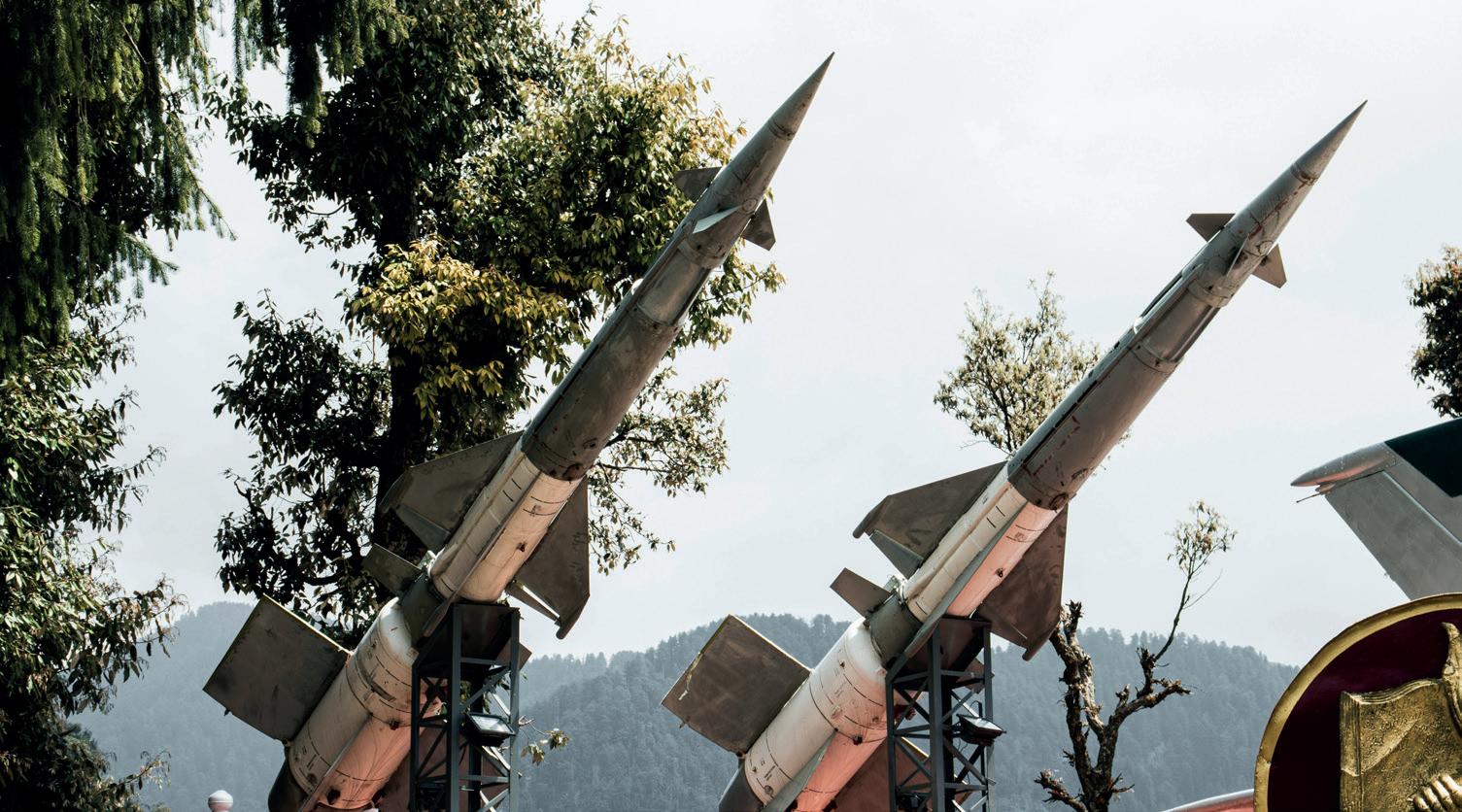
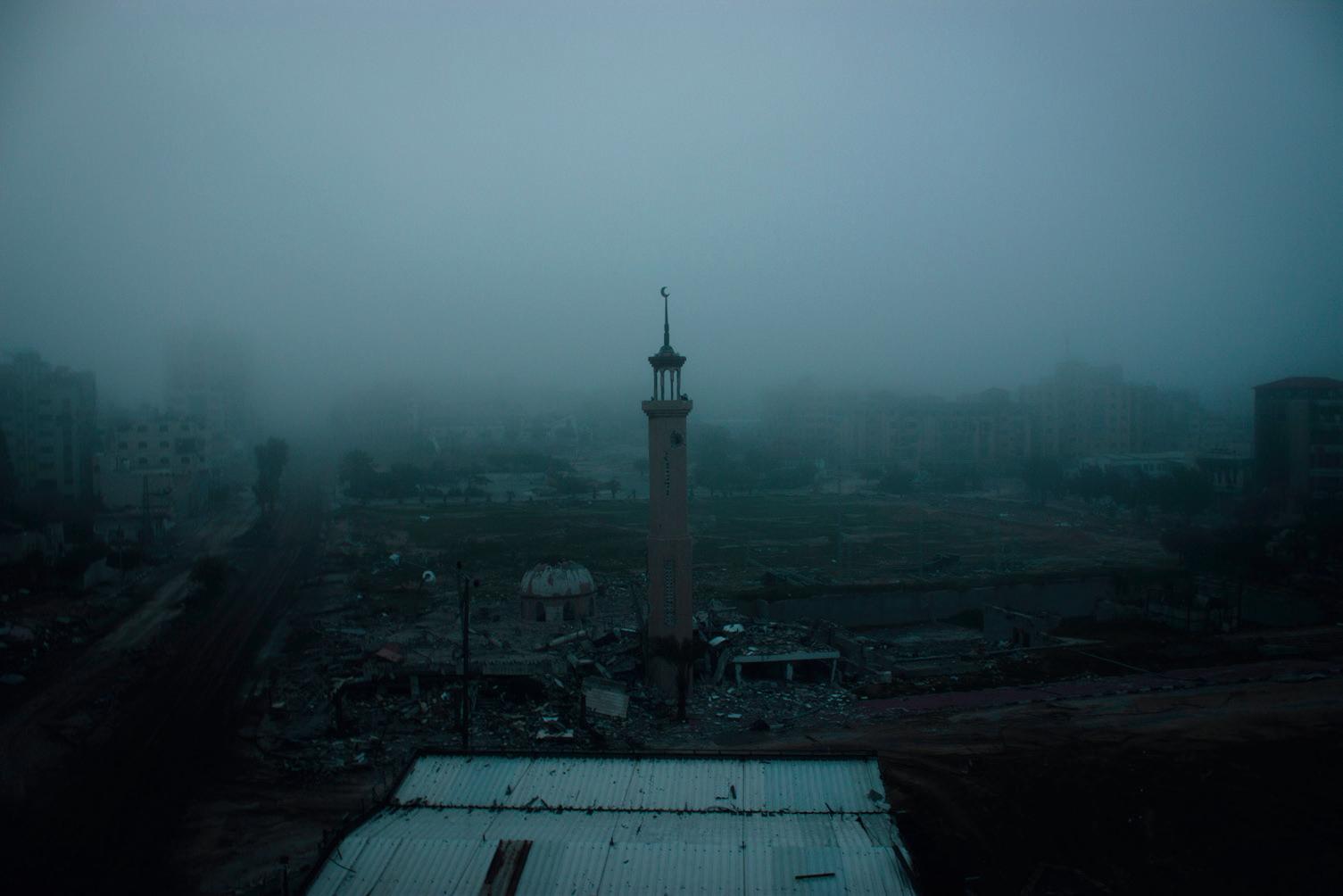
ethnic and religious fault lines.
Most recently and rather ironically, the UN’s Special Rapporteur on Palestinian territories accused Israel of committing acts of genocide against Palestinians in Gaza during escalating hostilities in early 2024. The rapporteur cited the massive civilian death toll, widespread injuries, detentions, and decimation of infrastructure allegedly inflicted by Israeli forces as evidence of an intent to physically destroy Palestinians as a group. (news.un.org)
Israel fiercely rejected the accusation as divorced from reality, stating its military operations targeted Hamas militants, not civilians. The U.S. also stated it had no evidence of genocide by its ally. Nonetheless, the allegations underscore how, even in the 21st century, the spectre of genocide continues to loom over long-simmering sectarian and ethnic-based conflicts. (www. aljazeera.com)
At its core, genocide ultimately stems from a corrosive “us vs them” mentality that dehumanises whole groups and makes once unthinkable violence appear justifiable and necessary. To truly uphold the principle of “never again” requires addressing root causes like ethnic, sectarian, and political tensions through justice, human rights and reconciliation before they metastasise into existential violence against entire peoples.
It demands establishing rigorous accountability mechanisms and the global political will to credibly investigate and prosecute those who orchestrate and carry out genocide. It compels speaking hard truths even when politically inconvenient, upholding the human dignity of all groups rather than selectively protecting allies or averting eyes from atrocities.
In an effort to strengthen the genocide convention’s legal framework, the
International Court of Justice (ICJ) issued a new, clarified definition of the specific acts that constitute genocide. (www.un.org)
However, as welcome as the ICJ’s judicial guidance may be, the fundamental challenge remains to enforce the genocide convention’s letter and spirit. Historically, garnering the political will, resources, and leadership to prevent or halt genocidal campaigns has proven extremely difficult.
This harsh reality was evident in the UN’s inability to intervene decisively during tragedies like Rwanda and the ongoing reluctance to investigate, let alone prosecute, those credibly accused of perpetrating genocide. National interests and geopolitical alliances frequently supersede humanitarian imperatives.
The recent conduct of Israel in the Gaza offensive underscores these systemic accountability shortcomings. Despite the rapporteur’s findings, it remains unlikely that Israel will face any concrete consequences from the UN or its allies like the United States.
For the genocide convention to have true teeth, reforms are needed to empower stronger multinational preventative mechanisms and interventionist capabilities. Ultimately, while redefining and clarifying what constitutes genocide is important, the more vital imperative is to impartially judge these most heinous of crimes based solely on facts and human rights principles – and take concrete action to prevent their perpetration, regardless of the perpetrator.
The dark history of genocidal behaviour overshadows collective gains made by humanity. Confronting genocide’s horror requires society’s mustering of moral courage & true resolve for peace.
3 AL HAKAM | Friday 10 May 2024
Akshat Jhingran | Unsplash
Tomer Texler | Unsplash
Abode of trials: Exploring Quranic teachings on life’s challenges
has given you. Vie, then, with one another in good works.” (Surah al-Ma’idah, Ch.5: V.49)
Introduction
The Islamic worldview often refers to this world as dar al-bala’, which can be translated as “the abode of trials”. This concept is central to understanding life from an Islamic perspective, as it emphasises that earthly life is full of challenges that test the strength of our faith. In this article, I will divide the topic into five sections:
(1) Synonyms for ibtila’ (trial), which discusses the various synonyms for the word ibtila’ that Allah has used in the Quran. These synonyms reflect the diverse aspects of the trials that believers may face in life.
(2) Types of trials, which examines the different types of trials that Allah subjects the believer’s faith to. These trials can be physical, psychological, or spiritual in nature and serve to strengthen the sincerity and devotion of the believer to Allah. (3) Difference between ibtila’ and ‘uqubah, which discussed the essential aspect of the differentiation between ibtila’ as trial and ‘uqubah as punishment. It is crucial to grasp the characteristics of a divine trial and to distinguish it from a punishment. (4) The wisdom behind the trials, which deals with the question of why Allah tests human beings. The goal is to fathom the wisdom and intentions behind the divine trials. The focus here is on how these trials can contribute to the development and maturation of a believer. (5) Aids in facing trials, which presents methods that can help in adequately dealing with trials. These include prayer, patience, gratitude, and trust in Allah.
Which words did Allah use in the Quran for trials?
The following section first analyses the use of the words that Allah has employed in the Quran regarding subjecting human beings to trials. In the Quran, Allah uses three verbs: imtahana, fatana, and bala. The verb bala appears in the Quran in two verb forms: bala and ibtala. Each verb is used in a specific sense. Words derived from the root letters of the verb bala appear a total of 38 times in the Quran. In Surah al-Ma’idah, Ch.5: V.49, the verb bala is used, and we read:
“And if Allah had [enforced] His will, He would have made you [all] one people, but [He wishes] to try you by that which He
The second verb imtahana is also used in the context of trial. This can be evidenced from Surah al-Hujurat, Ch.49: V.4:
“Verily those who lower their voices in the presence of the Messenger of Allah are the ones whose hearts Allah has purified for righteousness. For them is forgiveness and a great reward.”
The third verb fatana has the root letters f, t, and n, thus pointing to a solid origin that indicates testing and trial. Fitnah in the Islamic understanding refers to uncovering and revealing something that is uncomfortable for the affected person.
An essential difference between fitnah and ibtila’ is that fitnah is a more general term. While ibtila’ specifically refers to trials from Allah, fitnah can encompass a broader spectrum of tests and difficulties:
“And in like manner have We tried some of them by others, that they may say, ‘Is it these whom Allah has favoured from among us?’ Does not Allah know best those who are grateful?” (Surah al-An‘am, Ch.6: V.54)
A verb mentioned in the Quran in the context of a trial that does not mean “to test”, but carries the meaning of “to test”, is the word tamhis. It is also used as a synonym for ibtila’. However, it means to purify or to liberate something from something else. An example from the Islamic context is the sentence mahhasa Allahu al-‘abda min adh-dhanbi, which means “Allah purified the servant from sin.”
The difference between ibtila’ and tamhis lies in the consequences of the trial. While ibtila’ can lead to both positive and negative outcomes, the consequences of tamhis are exclusively positive. The term tamhis refers to a process through which purification takes place by means of trial. This analogy can be applied to the refinement of gold, where impurities are removed to obtain the pure metal. Transferred to the human being, this means that through tamhis the soul is purified from sins and bad qualities, leading to a spiritual elevation of the individual. In Surah Al-e-‘Imran, Ch.3: V.155, it is stated:
“[A]nd that Allah might test what was in your breasts and that He might purge what
was in your hearts.”
How does Allah test us?
In general, two types of trials by which Allah tests the believers can be identified from the verses of the Quran: The first type of trial is through good and evil (alibtila’ bi-l-khayr wa-sh-sharr). This trial can take the form of prosperity and ease or difficulties and adversities. It serves to test the gratitude and patience of human beings and to see whether they hold fast to Allah’s commandments in good times as well as bad.
In the Quranic exegesis Five-Volume Commentary, which is based on notes by Hazrat Khalifatul Masih IIra, this fact is explained as follows:
“There are two ways to test the mettle of a person, viz. (a) by making him pass through the fire of trials and tribulations; and (b) by bestowing upon him wealth and material power and prosperity. God tries His servants in both these ways.” (The Holy Quran with English translation and commentary [2018], Vol. 4, p. 2087)
The second type of trial is through command and prohibition (al-ibtila’ bi-l-amr wa-n-nahy). Here, the human being is tested on whether they follow the instructions and prohibitions of Allah. These trials can relate to the observance of religious obligations, such as prayer and fasting, but also to the avoidance of what is forbidden.
Referring to the Quranic verse “And [when] it is said to the righteous, ‘What [think ye of] that which your Lord has revealed?’ they say, ‘The best.’ For those who do good there is good in this world, and the home of the Hereafter is [even] better. Excellent indeed is the abode of the righteous” (Surah an-Nahl, Ch.16: V.31), Hazrat Khalifatul Masih IIIrh says about this type of test:
“So in this verse, the teachings of the Quran are called good (al-khayr). Therefore, I interpret the verse ‘and We test you with evil and good by way of trial’ (Surah alAnbiya’, Ch.21: V.36) to mean that We will test you through the injunctions (commands and prohibitions) of the Noble Quran, and if we reflect, it is indeed a trial.”
(Anwar al-Quran, Vol. 2, p. 292)
Allah says in Surah al-Anbiya’, Ch.21: V.36:

their life, human beings will be confronted with both good and evil. These trials may come in the form of well-being and adversity, joy and distress, comfort and hardship, as well as striving and exhaustion. They are trials that can evoke both joy and discomfort. It is important to understand that these trials are a part of human life and prepare us for the return to God.
In Surah al-A‘raf, Ch.7: V.169, of the Quran, it is stated:
“And We broke them up into [separate] peoples in the earth. Among them are those that are righteous and among them are those that are otherwise. And We tried them with good things and bad things that they might return.”
This verse shows that people are tested through good and bad events, such as accidents or other difficult situations. Here, the question arises: How does Allah test us with bad and good things?
I will first explain how Allah tests us with bad things. For this, let us read Surah al-Baqarah, Ch.2: V.156:
“Every soul shall taste of death; and We prove you with evil and good by way of trial. And to Us shall you be returned.”
This verse reveals that in the course of
“And We will try you with something of fear and hunger, and loss of wealth and lives, and fruits; but give glad tidings to the patient.”
Friday 10 May 2024 | AL HAKAM 4
Zafir Ahmad Ahmadiyya Archive & Research Centre
مۡکُٮتٰاٰ اۤمَ یۡ مۡکُوَلُبۡیَِ لِّ نۡکُلِّوَّ ۃًدَحِاٰوَّ ۃًمَاٰ مۡکُلُعَجَلِّ ہُلّٰلاٰ ءَآشَ وَلِّوَّ تِرٰیۡخَلِّاٰ اٰوَقُبۡتَسۡاۤفَ
نۡیۡذِلِّاٰ کَئِلِّوَّاٰ ہُلّٰلاٰ لِوَسۡرَ دَنۡعِ مۡہُتٰاٰوَصۡاٰ نَوَضُّغُیَ نۡیۡذِلِّاٰ نَاٰ مۡیَظِعِ رٌجۡاٰوَّ ۃًرَفِغُمَ مۡہُلِّ یوَقُتَلُلِّ مۡہُبَوَلُقُ ہُلّٰلاٰ نۡحَتَمَاٰ
مۡہُیَلُعِ ہُلّٰلاٰ نۡمَ ءَآلَؤُہٰۤاٰ اٰوَلِّوَقُیَِ لِّ ضٍعَبۡبَ مۡہُضُّعَبَ اۤنۡتَفَ کَِ لِّذِکُوَّ نۡیۡرِکِشّٰلِّاۤبَ مۡلُعِاۤبَ ہُلّٰلاٰ سَیَلِّاٰ اۤنۡنۡیَبَ نۡمَ
مۡکُبَوَلُقُ یۡ اۤمَ صَحَمَیَلِّوَّ مۡکُرَوَّدَصۡ یۡ اۤمَ ہُلّٰلاٰ یۡلِتَبۡیَِ لِّوَّ
اۤنۡیَلِّاٰوَّ ۃًنۡتَفَ رٰیۡخَلِّاٰوَّ رِشَّلِّاۤبَ مۡکُوَلُبۡنَوَّ تِوَمَلِّاٰ ۃًقُئِآذَ سَفۡنَ لُّکُ نَوَعَجۡرٌتٰ
کَِ لِّذَ نَوَّدُ مۡہُنۡمَوَّ نَوَحَلُصّٰلِّاٰ مۡہُنۡمَ اۤمَمَاٰ ضِرَاَلَاٰ یۡ مۡہُنۡعَطَّقُوَّ نَوَعَجۡرٌیۡ مۡہُلُعَلِّ تِاۤیَسَّلِّاٰوَّ تِنۡسَّحَلِّاۤبَ مۡہُنَوَلُبَوَّ
لِاٰوَمَاَلَاٰ نۡمَ صَقُنَوَّ عِوَجَلِّاٰوَّ فِوَخَلِّاٰ نۡمَ ءَیۡشَبَ مۡکُنَوَلُبۡنۡلِّوَّ نۡیۡرٰبِصّٰلِّاٰ رِشَّبَوَّ تِرٌمَثَّلِّاٰوَّ سَفۡنَاَلَاٰوَّ
Rafif Prawira | Unsplash
From this verse, we can precisely understand what is meant by Allah’s trial through bad things. Allah will test through hunger, fear, loss of people and money, etc. When the Holy Prophetsa began to spread his message, Allah tested the hearts and faith of the Companionsra, both men and women. The Meccans were the greatest enemies of Islam. They instilled fear in those who believed in Allah. Thus, Allah put the believers to the test. Would the believers abandon or conceal their religion out of fear? This was a trial. Many Ahmadis around the world are persecuted. The trial they are subjected to is a similar trial. Then Allah says that He will also test people through hunger. Every Muslim knows the time when the Holy Prophetsa and his followers were banished to the valley of Shi‘b Abi Talib. The Companionsra, both men and women, were patient. But Allah tested their patience. They had nothing to eat. But they were steadfast. This, too, was a trial through adversity.
This fact is explained in the Five-Volume Commentary as follows:
“The tests by means of which God intended to ‘prove’ the faithful are, as stated in this verse: (1) Fear, i.e. a state or condition in which fear will dominate them, the enemy surrounding them with diverse dangers. (2) Hunger, i.e. shortage of food; the enemy will not only cut off their means of communication but will also completely boycott them, leaving them stranded without food or provision. The word ‘hunger’ may also signify a state of famine. (3) Loss of wealth and property. The enemy will raid Muslims repeatedly and inflict heavy losses on them. (4) Loss of lives, i.e. the cruel war inflicted on them by the enemy will also cause loss of life. (5) Loss of fruits. The action of the enemy will not be confined to inflicting loss of lives and property only but will extend to inflicting loss of crops as well. As
(fruit) also means the fruit of one’s labour or the profit accruing to a man from any source, loss of fruits also signifies disorganisation of trade and industry.” (The Holy Quran with English translation and commentary [2018], Vol. 1, p. 259)
In summary, in Islam, trials are seen as a part of life and a way to Allah, to test a person’s faith, patience, and perseverance. The adversity here does not mean that Allah creates evil, but rather refers to the difficulties and challenges that a person may face in their life. The purpose of these trials is not only to test faith, but also to strengthen the spirit and character, and to foster trust in God.
In the Five-Volume Commentary it is explained:
“According to the Quran, God has generally two purposes in ‘proving’ men. He ‘proves’ or tries those who have attained to a high stage of spiritual advancement, as was the case with Abraham (2:125); and He also tries those who have not yet attained to that stage (29:3). His object in ‘proving’ the former is to bring them to the notice of the people and make them shine as models of virtue and purity; while in the case of the latter, the purpose is to make them acquainted with their own weaknesses so that they may try to improve their condition. Though misfortunes and afflictions involve a certain amount of pain, they also afford a good opportunity for spiritual reformation and purification.” (Ibid.)
Much more interesting is the trial through good things. It is much easier to identify the bad than the good. Therefore, I will explain how Allah tests us through the good. Allah has blessed us with many gifts, such as wealth, children, and health. However, these blessings are also a trial. God has entrusted these gifts to their recipients to see how they handle them. Will they become arrogant and corrupt the earth, as Pharaoh did? Will they be miserly and forbid what God has commanded, as Qarun did? Or will they use their God-given knowledge for hypocrisy and superiority over others, without fearing God, as Balaam, son of Beor, did?
Qarun was a member of the people of Mosesas, but he acted tyrannically towards them. Allah had given him immense treasures, whose keys would have been
swallow Qarun and his dwelling. He had no one to help him against Allah, and he could not save himself.
In this story, we can clearly understand the trial. Allah tested Qarun on how he would handle his wealth. Pharaoh had power. But Allah tested him on how he would use his power. Would he be arrogant, would he abuse his power or turn to Allah and accept Him? Accordingly, everyone is tested by Allah through good and bad things.
In addition to this trial, there is also a trial that specifically afflicts only the believers, namely the observance of commands and prohibitions. The trial of command and prohibition is a central aspect in the life of every human being. It is the means by which judgments are established as permitted (halal) and prohibited (haram).
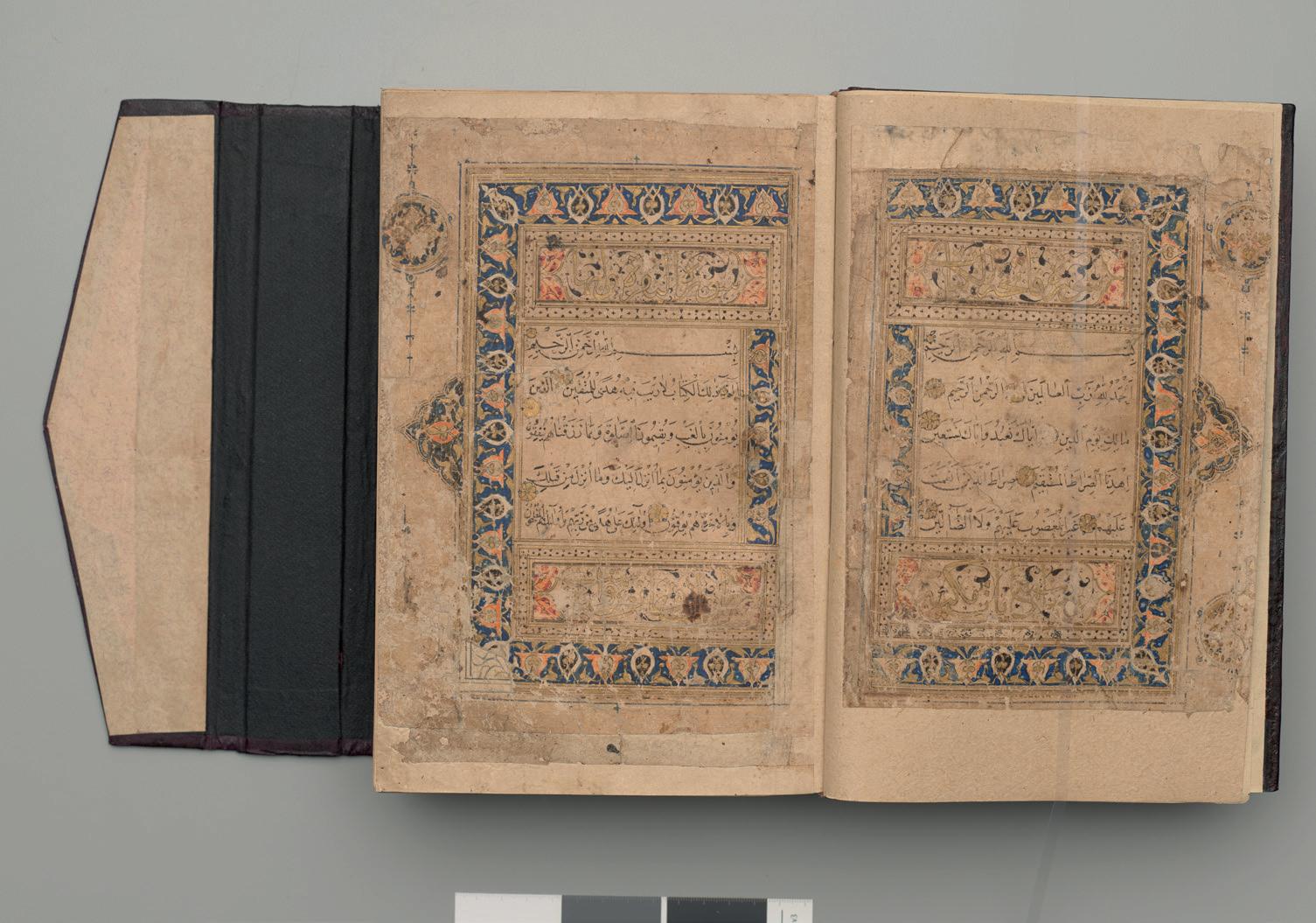
a burden even for a group of strong men. Despite these blessings, Qarun became arrogant and attributed his wealth to his own knowledge, instead of thanking Allah. His people warned him and said:
“Exult not, surely Allah loves not those who exult. And seek, in that which Allah has given thee, the Home of the Hereafter; and neglect not thy lot in this world; and do good [to others] as Allah has done good to thee; and seek not to make mischief in the earth, verily Allah loves not those who make mischief.” (Surah al-Qasas, Ch.28: V.77-78)
Qarun, however, ignored this advice and continued to boast about his wealth. He displayed his finery before his people, and those who desired the life of this world wished they had the same as Qarun. But those who had been given knowledge warned, saying:
“Woe to you, Allah’s reward is best for those who believe and do good works; and it shall be granted to none except those who are steadfast.” (Surah al-Qasas, Ch.28: V.81)
Finally, Allah caused the earth to
trial that required a great deal of patience, steadfastness, and the ability to endure suffering, the believers ultimately attained honour, wealth, and strengthened faith. Especially when the Muslims lived in Mecca and after their emigration, when they were subjected to a multitude of trials, they had to show patience and strictly adhere to the commands and prohibitions. As a result of these trials, they were eventually able to conquer Mecca, Arabia, Persia, and other regions.
In Islam, the faith of an individual is often tested through trials. It is said that the stronger a person’s faith is, the more difficult the trials they are subjected to. This concept is underscored by a hadith in which the Holy Prophet Muhammadsa was asked who had the most difficult trials. He answered that the Prophets have the most difficult trials, followed by the righteous. This indicates that a person is tested according to their faith. (Sunan Ibn Majah, Kitab al-fitan, Bab as-sabri ‘ala l-bala’, no. 4024)
However, it is a widespread misconception to believe that when God gives a person good things, He is pleased with them, and when He restricts their wealth, He is displeased. This is refuted in Surah al-Fajr, Ch.89: V.16-17 of the Quran, where it states:
“As for man, when his Lord tries him and honours him and bestows favours on him, he says, ‘My Lord has honoured me.’ But when He tries him and straitens for him his [means of] subsistence, he says, ‘My Lord has disgraced me.’”
This type of trial relates to the observance of divine commands and prohibitions. It tests whether an individual is able to follow the instructions given to them, and whether they abstain from the things that have been forbidden to them. It is a trial of obedience and discipline, which requires us to constantly strive to do what is right and avoid what is wrong. It is also a trial of our ability to take responsibility for our actions and bear the consequences of our decisions. This trial is an essential part of spiritual growth and personal development. It helps to shape our character, strengthen our moral and ethical values, and guide us on the path to a fulfilling and meaningful life.
What is the difference between a trial (ibtila’) and a punishment (‘uqubah)?
The distinction between trial and punishment is clear and straightforward. A trial is a process that serves to bring a believing person closer to their success. However, it is important to note that this process requires patience, perseverance, and the willingness to endure suffering. No human being is exempt from trials. Every second and every moment in a person’s life can represent a trial, whether through positive or negative experiences.
An illustrative example of this process can be found in the first Muslim community, the community of the Companionsra. After going through a
Punishment, also known as ‘uqubah, is a consequence that results from sins, transgressions, and deviations from the right path. The more sins and transgressions are committed, the more severe the punishment will be. It is important to understand that punishment is not only a form of retribution, but also a means of spiritual purification and the restoration of justice. Punishment takes effect after a sin has been committed. The severity of the punishment is proportional to the gravity of the sin committed. Punishment can occur both in this life and in the Hereafter. It is important to note that the manner in which punishment is meted out is determined solely by Allah. It can take the form of psychological punishment, physical punishment, or both. There are two main types of punishments: punishment out of mercy and punishment out of God’s wrath. Punishment out of mercy, also known as kaffarah is comparable to the relationship between parents and children. This type of punishment serves as an admonition and reminder, leading to repentance (tauba). The punishment out of God’s wrath is a harsher form of punishment, which is imposed as a reaction to grave sins. An example of this is the punishment inflicted upon Pharaoh.
Why does Allah test us?
The human trial by Allah is a central means of separating truth from falsehood. This Continued on next page
5 AL HAKAM | Friday 10 May 2024
ۃًرٌمَث
رَاٰدَلِّاٰ ہُلّٰلاٰ کَٮتٰاٰ اۤمَیَفَ غِتَبَاٰوَّ نَیۡحِرَفِلِّاٰ بُّحَیۡ اَلَ ہُلّٰلاٰ نَاٰ حۡرَفِتَ اَلَ ہُلّٰلاٰ نۡسَّحِاٰ اۤمَکُ نۡسَّحِاٰوَّ اۤیَنَدَلِّاٰ نۡمَ کَبۡیَصّٰنَ سَنۡتٰ اَلَوَّ ۃًرِخِاَلَاٰ نۡیۡدَسَّفۡمَلِّاٰ بُّحَیۡ اَلَ ہُلّٰلاٰ نَاٰ ضِرَاَلَاٰ یۡ دُاۤسَّفۡلِّاٰ غِبۡتٰ اَلَوَّ کَیَلِّاٰ
اَلَاٰ اۤہُقُلُیۡ اَلَوَّ اۤحَلِّاۤصۡ لُّمَعِوَّ نۡمَاٰ نۡمَِ لِّ رٰیۡخَ ہُلّٰلاٰ بُاٰوَث مۡکُلُیۡوَّ نَوَّرٰبِصّٰلِّاٰ
یۡ رَ لِوَقُیَفَ ہٗمَعَنَوَّ ہٗمَرِکۡاۤفَ ہٗبَرَ ہٗٮلُتَبَاٰ اۤمَ اٰذَاٰ نَاۤسَّنَاَلَاٰ اۤمَاۤفَ نۡنَاۤہٰۤاٰ یۡبِّرَ لِوَقُیَفَ ہٗقُزۡرَ ہٗیَلُعِ رَدَقُفَ ہٗٮلُتَبَاٰ اۤمَ اٰذَاٰ اۤمَاٰوَّ نۡمَرِکۡاٰ
>>
Opening pages from the Qur’an by Khayr al-Din al-Mar‘ashi | Wiki Commons
This Week in History
A glimpse into the rich history of the Ahmadiyya Muslim Jamaat
10 May 1985: During his Friday Sermon on this day, Hazrat Khalifatul Masih IVrh once again mentioned his vision related to “Friday the 10th,” and stated that he had received several interpretations from members of the Jamaat. He then went on to narrate some of those interpretations, and said, “We cannot make a final decision merely based on interpretation.”
Huzoorrh added that the most interesting interpretation received was that this divine vision did not mean any literal date or Friday and instead, pointed towards the 10th verse of Surah al-Jumuah. Huzoorrh elaborated that Allah the Almighty sometimes fulfils a vision several times and in several ways. Moreover, Surah al-Jumuah bears a great connection with Jamaat-eAhmadiyya.
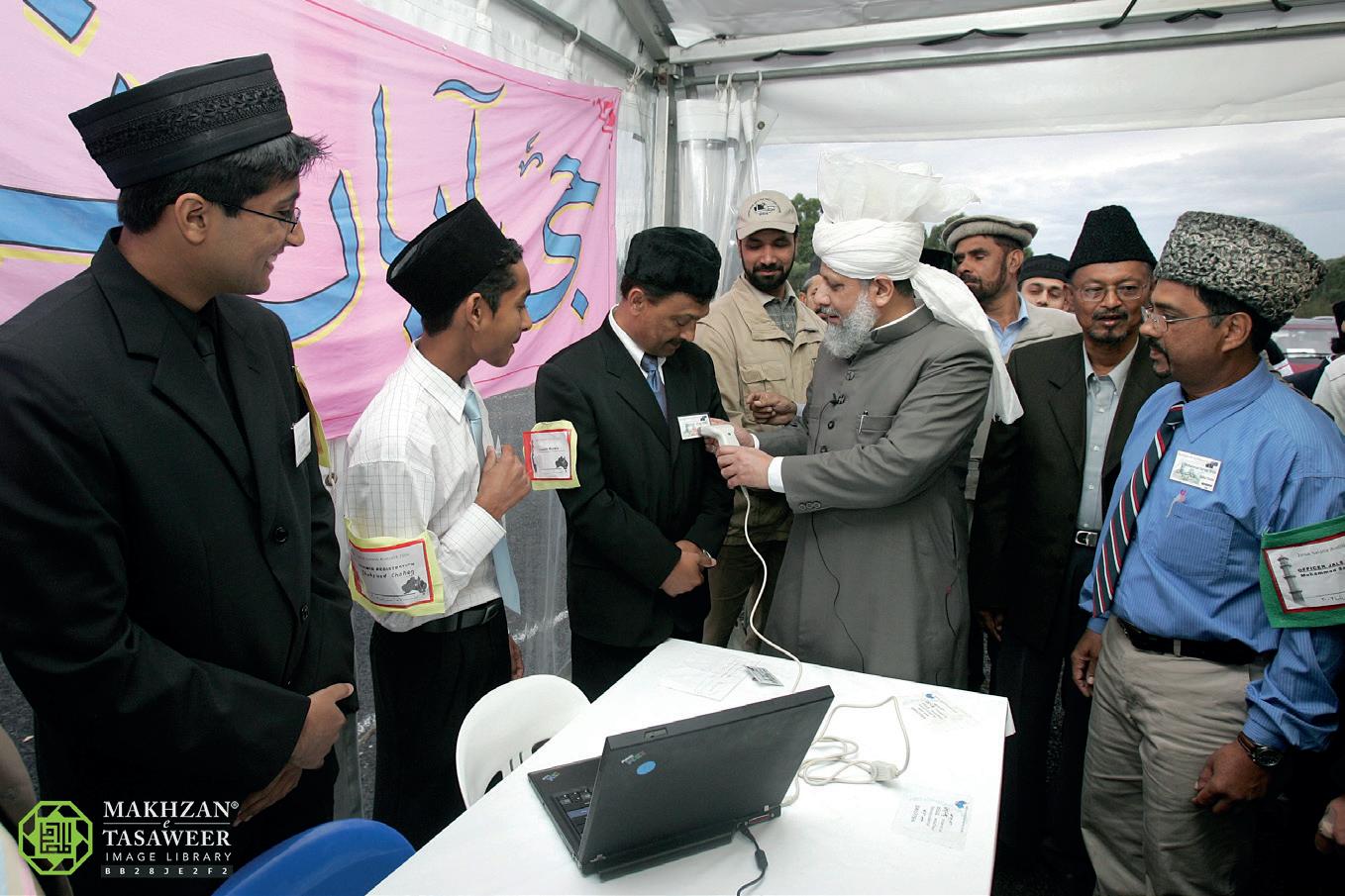

13 April 2006: On this day, Hazrat Khalifatul Masih Vaa inspected the arrangements for Jalsa Salana Australia and issued instructions to the workers. (Al Fazl International, 12 May 2006, p. 9)
14 May 1931: On this day, Hazrat Musleh-e-Maudra returned to Qadian after a visit to Mussoorie, Dehradun and Delhi.

For more details, see “A call for interfaith harmony and tabligh: Hazrat Musleh-e-Maud’s visit to Mussoorie, Dehradun and Delhi, 1931”, at alhakam.org (2 June 2023, p. 8).
14 May 2021: During his Eid-ul-Fitr Sermon on this day, Hazrat Khalifatul Masih Vaa instructed Ahmadis to pray especially for Palestinians and said:

For more details, see “Friday the 10th: A glad tiding to the Ahmadiyya Muslim Jamaat”, at alhakam.org (23 April 2021, p. 18).
11 May 1976: On this day, Al Fazl published that Hazrat Khalifatul Masih IIIrh had emphasised that every Ahmadi should plant trees and then properly take care of them. (Al Fazl, 11 May 1976, p. 2)
11 May 2013: On this day, addressing a special reception held in his honour at the Montage in Beverly Hills, LA, Hazrat Khalifatul Masih Vaa said:
“The direction the world is moving in suggests that the dark shadow of war is being cast over a very large part of the globe. If war breaks out then countless innocent women, children and elderly people will all die. The destruction will be greater than was witnessed in the previous two World Wars.”
10 - 11 May
12 May 1908: On this day, Professor Clement Wragge came to see the Promised Messiahas in Lahore. During this first meeting, after asking some questions relating to science and the common understanding of the world and hearing the Promised Messiah’sas replies, Clement Wragge sought permission to see Huzooras again and returned on 18 May for a second meeting and a series of questions.
For more details, see: “Professor Clement Wragge’s First Meeting with the Promised Messiah” at alhakam. org (19 March 2021, pp. 14-15).


For more details, see “World War III: Hazrat Mirza Masroor Ahmad warned for almost two decades, but the world failed to take heed”, at alhakam.org (4 March 2022, p. 8).
12 May 1970: On this day, the then Governor-General of Sierra Leone hosted a reception in honour of Hazrat Khalifatul Masih IIIrh, which was also attended by various dignitaries of the country, including ministers and foreign ambassadors. (Tarikh-e-Ahmadiyyat, Vol. 26, p. 67) 12 May
“Today, we must sincerely pray for the Palestinian people who are currently being subjected to grave cruelties. In recent days, when they went to pray in the Al Aqsa Mosque, they were brutally attacked and beaten by the state authorities. [...] Certainly, Muslim countries should come together and play their role to protect the Palestinians and other Muslims who are being oppressed in the world. However, the Muslim world is divided and there is a complete lack of unity amongst the Muslim nations. [...] May Allah grant sense and wisdom to the Muslim leadership. May He also give sense to the Israelis that they may refrain and withdraw from their injustices.”
For more details, see “The Ahmadiyya Khilafat’s call for Muslim unity: The solution to Israel-Palestine issue”, at alhakam.org (21 May 2021, p. 21).

13 - 14 May
Friday 10 May 2024 | AL HAKAM 6
Hazrat Khalifatul Masih Vaa inspecting preparations of Jalsa Salana, Australia, 2006
10 - 16 May

<< Continued from previous page
aspect is of fundamental importance. It is a double-edged sword: On the one hand, it serves to elevate the status of an individual, grant rewards, and forgive sins. On the other hand, it serves to test people collectively and separate the good from the bad. This principle is also found in the Quran.
In the Five-Volume Commentary, it is explained:
15 May 1908: On this day, The Daily Paisa Akhbar, and Akhbar Ahle-Hadith, published a prophecy made by Dr Abdul Hakeem Khan, who announced that the Promised Messiahas would pass away on 4 August 1908. Arrogantly, he claimed: “Mirza will fall prey to a fatal illness and shall die on 21 Sawan 1965 [i.e., 4 August 1908].”
The Promised Messiahas passed away on 26 May 1908.

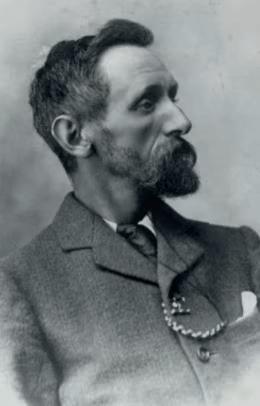

“God makes believers pass through travails, trials and tribulations and He has enjoined fighting on them that sincere believers may become distinguished from the hypocrites and that the qualities of head and heart of believers and also the results of their steadfastness and fortitude amidst hardships and privations may have an opportunity to come into actual play.” (The Holy Quran with English translation and commentary [2018], Vol. 5, p. 2932)
An example of this is the change of the direction of prayer, the qibla, by Allah. This change was met with resistance from some people. But God explained that the change in the direction of prayer was a test to see who truly remains with Allah and who returns to their original misguidance.
For more details see: “Hazrat Mirza Ghulam Ahmad’s demise and Abdul Hakeem”, at alhakam.org (10 February 2023, p. 17).
15 May 1933: On this day, a Muslim Political correspondent of The Civil and Military Gazette wrote:
“It is, I think, a matter of regret that Mirza Bashir-ud-Din Mahmud Ahmad[ra] should have retired, as I understand he has, from the Presidentship of the Kashmir Committee, where his counsels were always those of moderation and prudence. Quietly, but nonetheless with determination, he fought the battle of the Muslims of Kashmir. It was due to his efforts very largely that the important right of peasant proprietorship was conceded to the Muslim agriculturists of Kashmir and
Jammu, that lawyers were sent who defended something like two thousand cases arising out of the riots free of charge—and, I think, not least important of all—he combatted the mischievous Ahrar influence.”
For more details, see “Hazrat Musleh-e-Maud’s services to the Muslim cause: Guidance for Turkey, peace in the Arab world and the Kashmir Movement”, at alhakam.org (19 February 2021, p. 41).

16 May 1947: Delhi’s newspaper “Riasat” commented in its editorial that Ahmadis were supporting the Pakistan Movement, but soon after the creation of Pakistan, the nonAhmadi Muslims would treat them exactly as the Afghan government had treated them in the past.
In response, during his speech on this day, Hazrat Musleh-e-Maudra stated that in a situation like this, a divine community which is purely based on religion, morals, and justice, will keep in mind the rights of the people while making any decision, instead of seeking its own benefit. Huzoorra emphasised that the Jamaat would give precedence to the interest of the Muslim community, and that “it is our obligation to help the oppressed nation, no matter if they kill us or harm us. We have been harmed by every nation.”
Overall, the trial by Allah is an important aspect of faith, which serves to reveal the truth, reward the believers, and separate the disbelievers. It is a process that takes place on both an individual and a collective level and serves to separate truth from falsehood and the good from the bad.
Aids in facing trials
Islam teaches patience in times of ease and hardship. This virtue can help overcome difficult trials. Patience is a teaching from the Quran, where Allah attributes this quality only to believers. The Holy Prophet Muhammadsa linked patience with the concept of ihtisab, which means to endure or pursue something in the hope and trust in Allah, that Allah will reward one for it.

For more details, see “Hazrat Muslehe-Maud’s services to the Muslim cause: Guidance and support to leaders of the Pakistan Movement”, at alhakam. org (5 March 2021, p. 20).
15 - 16 May
Seeking divine assistance and taking refuge in God is of great importance for believers. The art of patience presents a challenge for them, which they must master. Prayer can serve as a means of strengthening one’s willpower. Believers should keep in mind that Allah is accepted as the Helper. This can be illustrated by examples such as the deliverance of Mosesas from slavery in Egypt by God, and Abraham’sas deliverance by God from the burning fire. Believers should therefore be able to rely on Allah to assist them as well. The Quran is referred to as a remedy for believers. Reading the Quran alleviates the burden of trial because, in almost every verse, Allah makes it clear that He does not abandon anyone. Giving charity is very important. Allah repeatedly calls upon believers in the Quran to give charity. Giving charity can also help in a time of trial. In many traditions of the Holy Prophetsa, we read that giving charity will remove future difficulties.
Understanding destiny can also help a person comprehend the burden of trial and assist them in patience. Ultimately, it is a person’s firm belief in Allah and His Omnipotence that saves them. He is the One who can rescue and help a person from every trial and difficulty.
7 AL HAKAM | Friday 10 May 2024
An old Image of Qadian
Professor Clement Wragge | Sir Harold Nicholas, Wiki Commons
Origins of fundamentalism and the revival movement of Islam Ahmadiyyat – Part II
Conflict resolution in Islam – the guidance to Muslims in the Holy Quran
The Holy Quran states in Surah al-Hujurat: “And if two parties of believers fight each other, make peace between them.” (Surah Al-Hujurat, Ch.49: V.10)
It has been explained in the Five Volume Commentary of the Holy Quran:
“The central theme of the Surah is the solidarity of Islam. Directions and rules of conduct which are calculated to achieve and maintain this solidarity have been laid down in it in some detail. Some of these rules have been mentioned in the preceding verses, others follow in the verses that come later. A great danger to the security and solidarity of the Muslim State or Community are the disputes and quarrels that haply might arise between different Muslim groups or parties. The verse under
comment provides a most effective remedy to compose these quarrels. Primarily, the verse deals with the settlement of disputes between Muslim parties, but it equally embodies a sound basis on which a really effective “League of Nations” or a “United Nations Organisation” can be built. The verse lays down the following principles for the maintenance of international peace.
“As soon as there are indications of disagreement between two nations, the other nations, instead of taking sides with one or the other, should at once serve notice upon them, calling upon them to submit their differences for settlement to a “League of Nations” or “United Nations Organisation”, as the case may be. If they agree, the dispute will be amicably settled. But if one of them refuses to submit to the “League” or having submitted refuses to accept the award of the “League” and prepares to make war, the other nations should all fight it.
“It is evident that one nation, however strong, cannot withstand the united might
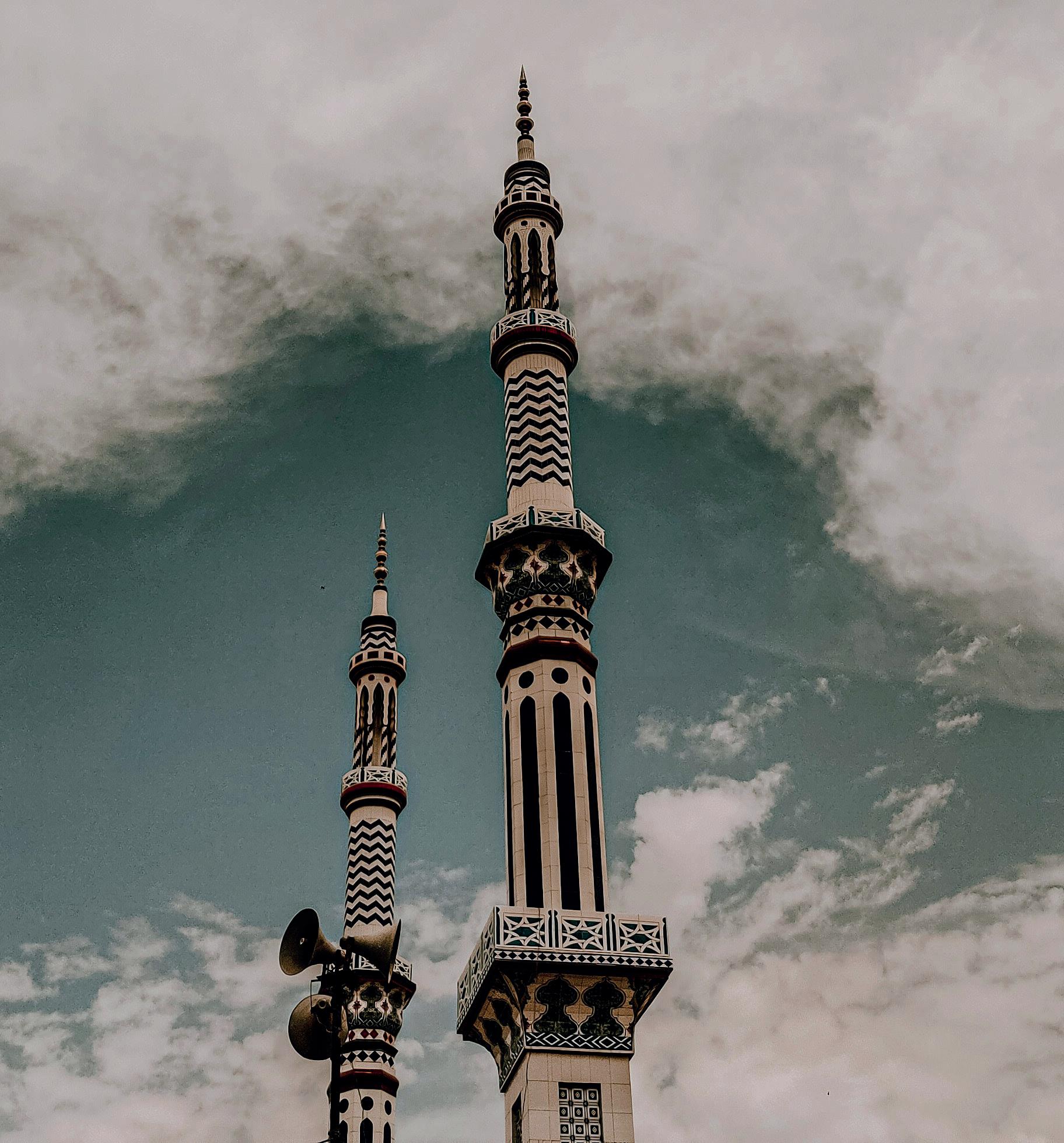
of all other nations and is bound to make a speedy submission. In that event, terms of peace should be settled between the two original parties to the dispute. The other nations should act merely as mediators and not as parties to the dispute and should not put forward new claims arising out of the conflict with the refractory nation, for that would lay the foundation of fresh disputes and quarrels. The terms of peace should be just and equitable with reference to the merits of the dispute; they should be confined to the original dispute between the parties and should not be allowed to travel beyond it.
“It is only such a “League” or “Organisation” which can safely be entrusted with the maintenance of international peace, not a League or Organisation whose very existence is dependent upon the goodwill of others.”
(Five Volume Commentary, Vol. V, pp. 2961-62)
Then in verse 11 of the same chapter, it is said:
“Surely [all] believers are brothers. So, make peace between your brothers.”
(Surah al-Hujurat, Ch.49: V.11)
“The verse lays special stress on Islamic brotherhood. Islam tolerates no discord or dissensions between brothers. If there happens to arise a quarrel or dispute between two Muslim individuals or groups, other Muslims are bound at once to bring about reconciliation between the quarrelling parties. Islam’s real strength lies in this ideal of brotherhood which transcends all barriers of caste, colour, or clime.” (Ibid.)
During the heightened tensions between Muslim nations during the Gulf Crisis, Hazrat Mirza Tahir Ahmad, Khalifatul Masih IVrh emphasised that “the Islamic world has not followed the guidelines as enunciated by these verses of the Holy Quran.” (The Gulf Crisis and New World Order [Khalij ka Buhran], p. 33)
What has been described above is just based on two verses of the Holy Quran that advocate for the need to put aside conflicts by placing unity and mutual dialogue at the centre. If fundamentalism is going back to the scripture’s word-for-word teachings, then this is one example rarely found in academic research as evidence.
Jihad – the literal meaning
With their rise, influence and then decline in the last decade or so, the narrative
from ISIS was one on the precepts of their understanding of Jihad – the struggle that was for “defeating” the West and establishing the dominance of Islam by force.
However, On its own, Jihad means “struggle” or “to strive”. (The Essence of Islam, Vol. 2, p. 319)
The Jihad of the early Islamic history was fought to defend, not just the religion of Islam after years of intensive persecution that was aimed at early Muslims and the Holy Prophetsa, but also the very existence of belief in God and religion itself.
No compulsion in religion
The Holy Quran states:
“There should be no compulsion in religion. Surely, right has become distinct from wrong; so whosoever refuses to be led by those who transgress, and believes in Allah has surely grasped a strong handle which knows no breaking. And Allah is All-Hearing, All-Knowing.” (Surah alBaqarah, Ch.2: V.257)
In the Five Volume Commentary, it has been explained:
“The injunction to make special sacrifices in the cause of religion and to fight the enemies of Islam who had transgressed against the Faithful was likely to cause the misunderstanding that Allah desired Muslims to use force for propagating their religion. The verse under comment removes this misunderstanding. The object for which Muslims have been commanded to take up arms against the disbelievers is not to force them to accept Islam, but only to check mischief and put a stop to persecution. The verse enjoins Muslims in the clearest and strongest of words not to resort to force for converting non-Muslims to Islam. In the face of this teaching embodied in the words, There should be no compulsion in religion, it is the height of injustice to accuse Islam of countenancing the use of force for the propagation of its teaching.
“The verse not only gives the commandment that in no case is force to be resorted to for the purpose of converting non-Muslims to Islam, but also gives the reason why it should not be used, saying: Surely, right has become distinct from wrong, i.e. the true path has become distinct from the wrong one and therefore there is no justification for using force. Islam is a manifest truth. Anyone who sincerely desires to see this truth can easily
Friday 10 May 2024 | AL HAKAM 8
Ayesha Naseem UK
sheraz nazar | Unsplash
see it; but if there is a person who does not desire to see it, no force can possibly make him do so. One only needs to point out its beauties to non-Muslims; it rests with them to accept it or reject it as they like.
or faith, as defined by Islam, consists in believing something with the heart or the mind and expressing that belief with the tongue. No force on earth can bring about that change.”
“The person who sticks to true faith and shuns false ones is here represented as laying hold of a strong
(‘urwah) which word, as shown above, gives a number of meanings. Taking it in the first-mentioned sense, i.e. the handle of a mug, etc., the Quran compares Islam to the pure lifegiving liquid which is put into a mug, and the believer is represented as taking fast hold of the handle thereof. Taking the word in the second sense, i.e. anything which is grasped and clung to for support; the true faith is represented as something on which complete reliance can be placed in all circumstances. If one adheres to it, there is no fear of one’s stumbling or falling down. Following the third significance, i.e. a pasture that remains green even in time of drought, Islam has been likened to a grazing ground the herbage of which is everlasting. There can be no spiritual famine in Islam. Following the lastmentioned meaning of ۃًوَّرِ� Islam is represented as a storehouse of spiritual treasures that are without equal.” (Five Volume English Commentary of the Holy Quran, Vol. I, pp. 403-404)
Jihad of the pen
Despite such a profound and beautiful injunction of Islam to not use force or compulsion, some Muslim scholars still believe that just like in the period of early Islam, wars are necessary.
In relation to this, the Promised Messiahas has written: “I have come to you with an order: jihad with the sword has ended from this time forward, but the jihad of purifying your souls must continue.” (The British Government and Jihad [Government Angrezi aur Jihad], p. 17)
A hadith of the Holy Prophetsa supports this; the narration refers to “yada-u l-harb”


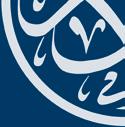

which means that “(when the Messiahas comes) he will put an end to religious war.” (Ibid.) In Invitation to Ahmadiyyat [Da‘wat-ul-Ameer], Hazrat Mirza Bashirud-Din Mahmud Ahmad, Khalifatul Masih IIra, stressed that in this era “Jihad by the sword cannot help Islam.” (p. 440)
The objective is to bring people closer to the teachings of Islam as revealed in the Holy Quran, and through the study of the life and character of the Prophet Muhammadsa, Islam Ahmadiyyat intends to bring a revolution of the self among its followers. The argument that Islamic “fundamentalism” increases the risk of militancy against Western modernisation and civilisation is directly challenged by Ahmadiyyat not just in words but also in practice because its ideas trace back to the original teachings of the religion – which instils the values of compassion, peace, and freedom at the centre of belief.
Does Islam resist modernity and civilisation?
The idea of resisting modernity because of a potential clash between Western civilisation and Islam is another aspect often contested against it for having extremist tendencies. Samuel Huntington infamously argues in Clash of Civilisations that Islam absolutely opposes modernisation, and it is the complete opposite of what the West represents. For Huntington, other world religions still stand on a moderate scale between Islam on one end, and the secular West on the other. This, at its simplest, is another obvious sense of ‘othering’ implied by Huntington for while other religions may still stand a chance in the West, Islam never will. Richard Dawkins made a similar case recently during his interview with LBC radio.
If for a moment, we take away the religious element and just focus on the view that Islam has no place in the West, don’t we see just another form of fundamentalism? If, supposedly, taking religious commandments and teachings literally is extreme and fundamental then isn’t believing a religion can never be welcomed in a specific part of the world or society extreme and fundamental too? The apparent Islamophobia and the double
standards have blinded those whose whole focus should be to build arguments with evidence and honest research.
What is civilisation?
Simply, Oxford English states that civilisation is ‘a state of human society that is very developed and organised.’
Hazrat Mirza Bashir-ud-Din Mahmud Ahmad, Hazrat Khalifatul Masih IIra has also elaborated on the concept of civilisation, and wrote:
“Civilisation is the material progress and development of a society”, including aspects like “economic progress, the level of technological innovation, the advancement of the means of travel, communication and the intellectual progress of the society.” Huzoorra also emphasised that even fostering “peace and stability […] is also a measure of its civilisation.” (See “Islam and Europe? A Clash of Civilisations”, www. reviewofreligions.org)
Hazrat Mirza Masroor Ahmad, Khalifatul Masih Vaa has said that the declining belief in religion in the West is the reason people fear Islam because Muslims, more broadly, “remain attached to their faith.” (Ibid.)
Considering how one of the biggest critiques of religious fundamentalism is that it apparently confronts modernisation, this makes complete sense. While it is undeniable that the fear of being forced into committing to faith has spread because of the actions and ideologies of people who use the name of religion to justify their aggression and militant tendencies, Hazrat Khalifatul Masih Vaa has spoken to non-Muslims on several occasions and has emphasised that “there is no cause to fear Islam. Muslims believe the Holy Quran to be a final and perfect religious teaching and it is due to our love and obedience to the Holy Quran that we firmly believe that religion is a matter of the heart and personal to every individual.” (Ibid.)
Rather than avoiding addressing the criticisms aimed at Islam and the unfairly assumed challenges it supposedly poses to Western society, the Ahmadiyya Muslim Movement, through its leadership, continues to fulfil its responsibility of clarifying misconceptions and informing
people about the real message of Islam. Indeed, by doing so, it is fulfilling the purpose for which the spiritual Ahmadiyya Khilafat was established after the demise of the Promised Messiahas
Conclusion
It has been regrettable that during research for this piece of work, every reference noticed regarding Islamic teachings in academic published work did the bare minimum of citing another scholar’s work or a general theological view of a Muslim group. Not once was an actual verse from the Holy Quran or its commentary cited anywhere. Nor was a reference made to a narration of the Holy Prophetsa. Yet claims of Islamic movements that followed the original teachings of the scripture being the inspiration for extremists were made.
Global history must deal with such weaknesses in historiography, especially in a time where one-sided assumptions void of evidence and reasoning, are rife.
An even more contemporary case is of Palestine at the moment. For over six months, Palestinians in Gaza have been documenting the atrocities that are being inflicted on them by the Israeli forces, yet they were silenced, unheard and ignored. Now when Israel’s impunity has led to the brutal killing of seven foreign nationals who were in Gaza to provide food to the vulnerable population of the Strip, the same voices in the West who were silencing Palestinian testimony are now quoting and referencing it.
If this is not a lesson for academia, then what will be?
In conclusion to the case study of Islam Ahmadiyyat, it’s fair to make the case that a religious group can be fundamentalist and can be so by practically challenging the commonly known negative connotations attached to the term. But language and its meaning constantly change so, the term fundamentalism is no different. What would be fair and reasonable though, is that if researchers and historians do not confine their research and findings to specific definitions that are now either outdated or can easily be dismissed with counter cases – as has been the case with fundamentalism.
9 AL HAKAM | Friday 10 May 2024
نَاۤمَـٰیۡاٰ
هوَّرِ�
Religion, Faith, History, Society ... Pitch Your Ideas To Us Info@alhakam.org * For more information, visit www.alhakam.org/write-to-us/



Maulana Attaullah Kaleem
54 years of service across five continents
A series looking at pioneer missionaries and devotees of the Ahmadiyya Muslim Jamaat who gave precedence to faith over the world.
Attaullah Kaleem Sahib, was born on 25 September 1922 in Amritsar. He studied at Madrasa Ahmadiyya and Jamia Ahmadiyya. On 3 June 1949, he passed the exams for Maulvi Fazil and then served briefly in the Furqan Force. He completed his BA from Punjab University. He was first sent to Ghana and remained in service for the next 50 years.
On 23 January 2000, at his request for retirement, Hazrat Khalifatul Masih IVrh directed the relevant office to acknowledge Attaullah Kaleem Sahib’s extensive years of service. Given his declining health, which hindered his ability to perform full duties, his request for leave was duly granted.
He passed away on 7 January 2001, in Lahore, after more than 50 years of service
When the final draft of his biography “Surguzasht-e-Kaleem” was presented to Hazrat Khalifatul Masih Vaa, Huzooraa graciously wrote back to the compiler (Habibullah Sadiq Bajwah Sahib):
“The incidents of his tablighi, tarbiyati, and administrative activities are such that they are exemplary for a preacher.”
Countries of service
From 1951 to 1955, he lived in Ghana as a missionary. He served in Wakalat Tabsheer, Rabwah, from 1955 until 1959, and then went back to Ghana where he served until 1970. Following that, he served as Amir and Missionary In-Charge of Ghana.
From 1965 to 1970, he was also assigned as the in-charge of the West Africa Zone. In 1970, he was appointed as the first secretary of Hadiqatul Mubashareen in Markaz. In 1972, he was again assigned the duty of Amir and Missionary In-Charge of Ghana, and in 1975, when he returned to Markaz, he was appointed as the Secretary of Majlis Nusrat Jehan. On 31 August 1977, he took charge as Amir and Missionary In-Charge of America, serving until December 1983.
In 1984, he was appointed as the Vice Principal of Jamia Ahmadiyya and served as the acting Principal from August 1985 to December 1985. In 1986, on the instruction of Hazrat Khalifatul Masih IVrh, he visited and stayed for some time as the central representative in Suriname, Guyana, and Trinidad. He served in Germany from August 1987 as the Missionary In-Charge, till September 1998. In August 1999, he
was sent to Kababir, Haifa, as Amir and Missionary In-Charge of Palestine, where he remained till 22 February 2000.
Diverse services
During his stay in Ghana, Attaullah Kaleem Sahib not only wrote many letters about Islam and Ahmadiyya in national newspapers and magazines but also pioneered the publication of the monthly magazine, Guidance, serving as its editor. He also authored numerous religious pamphlets. During his time in America, he established and published the fortnightly Al Noor and the monthly Ahmadiyya Gazette from San Francisco, in addition to contributing articles to other local and national newspapers. Many of his tracts and articles have been published multiple times, with some translated into other languages. In Germany, he furthered his publishing efforts by launching the monthly magazine Akhbar-e-Ahmadiyya. Additionally, during his stays in various countries, he actively participated in radio and television programs, spreading the message of Islam in universities and colleges. He also seized opportunities to address gatherings of various nationalities in Germany and present religious books to numerous heads of countries.
During his time in Ghana, Attaullah Kaleem Sahib’s articles and letters were published in 72 national newspapers. In addition to writing numerous articles in Urdu and English, he also prepared and printed various forms of literature such as tracts, translations, and pamphlets. Furthermore, his interviews and speeches were frequently broadcast on various radio and television channels in Ghana, America, and Germany.
In 1963, while serving in Ghana, a picture of him was published in the country’s leading newspaper, showing him sitting with the President of Ghana. Despite being ill, Hazrat Musleh-e-Maudra invited his father and showed him his son’s photograph, saying: “Look how much respect Allah Almighty has given to our Kaleem!”
During his tour to West Africa in 1970, Hazrat Khalifatul Masih IIIrh gave him the turban that he himself had worn. Additionally, in his Friday sermon upon returning to Rabwah, Huzoorrh mentioned his name and also acknowledged the services of his first wife, Nasima Begum Sahiba.
A co-worker in Africa, while




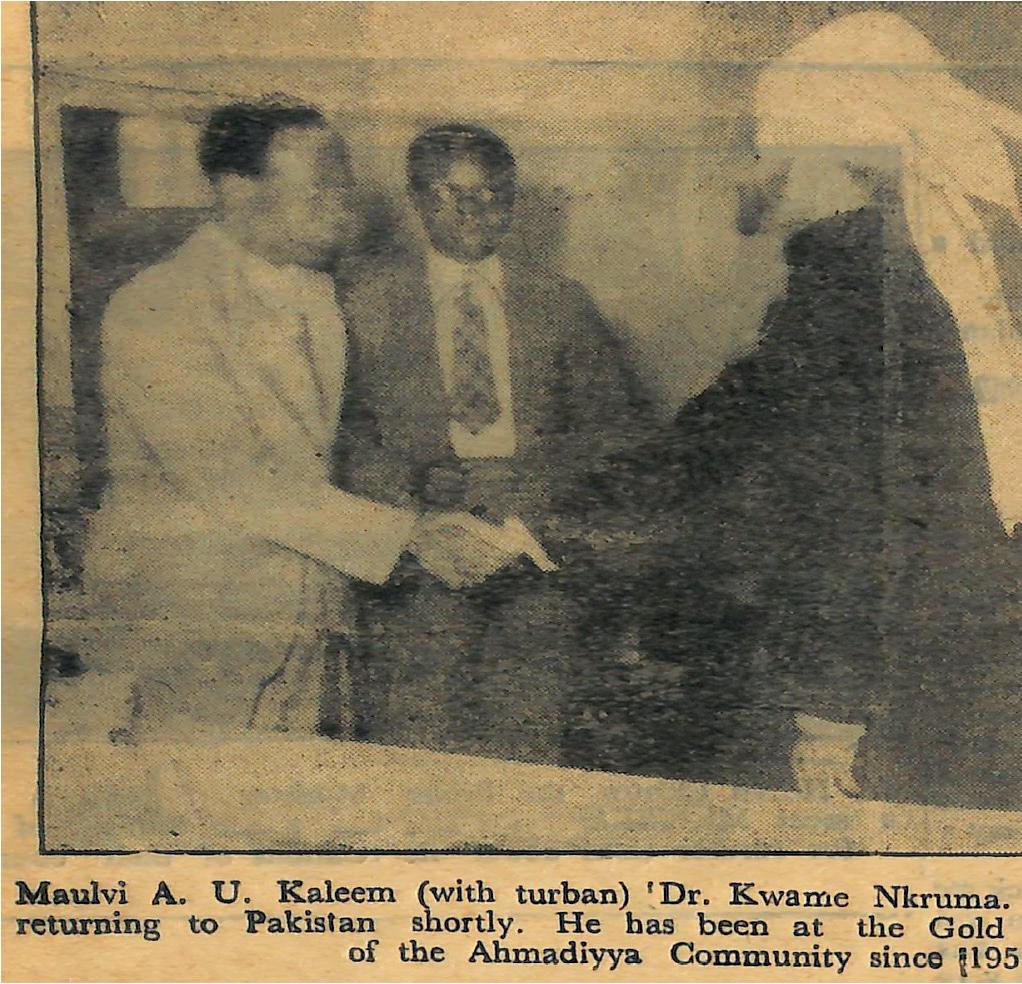
mentioning Attaullah Kaleem Sahib, said that he had the opportunity to work as a teacher in Africa and then later they were together in California. He expressed that he always found Attaullah Kaleem Sahib to be exceptionally kind, compassionate, and friendly. He lived a simple life, wearing clean and modest attire, and spoke in a loud and clear tone. He was a very sincere, obedient, and God-fearing individual.
While stationed in California, he initiated the publication of the magazine AlNoor with the primary aim of conveying the sermons of the Khalifatul Masih. Initially distributed solely to Ahmadis in the western region of America, it later expanded its circulation nationwide following directives from the Markaz. Recognising the growing demand for English translations of the sermons, he also undertook the publication of the Ahmadiyya Gazette. Despite not being proficient in typing, he painstakingly pressed each letter with a single finger to prepare the articles. Subsequently, he embarked on lengthy bus and rail journeys to deliver the draft to the most cost-effective typesetter. Upon completion, he would go back to retrieve the set essays, often arriving late at night, where he meticulously arranged the pages. This routine continued as he managed other printing endeavours at the press.
Attaullah Kaleem Sahib did not have a car or a driver’s licence. Often, after the publication of the magazine, he would return to the mission house carrying the
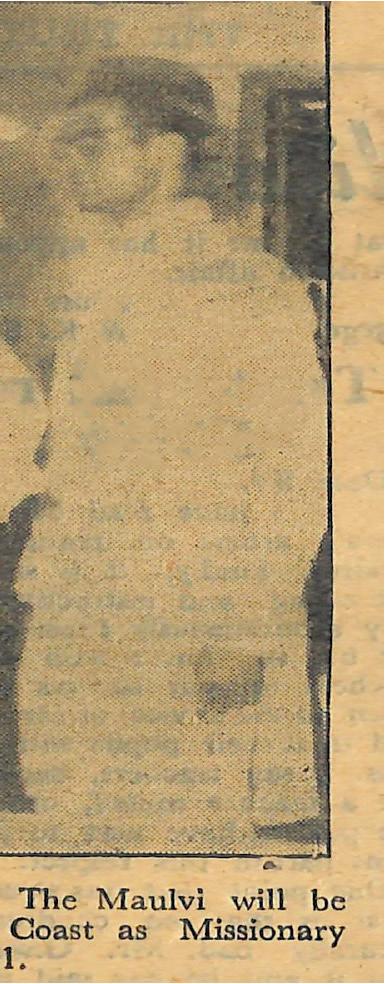
boxes by himself. The co-worker mentioned that if he had not enquired from him, he would not have known that he used to carry such weight and travel such long distances. He often had to handle the delivery of the magazines himself, affixing the labels and postage, and taking them to the post office to mail them.
He was highly proficient in English and authored numerous outstanding articles. On one occasion, a friend came across one of his articles and expressed disbelief, questioning whether it was truly written by Kaleem Sahib as he was impressed by the exceptional quality.
There was no trace of arrogance in him. Once, a Ghanaian minister asked him about his father. He humbly responded that his father was the muezzin of a mosque and used to sweep its floors. Upon hearing this, the minister stood up, embraced him, and remarked that a nation with humble individuals like him would undoubtedly progress.
He was well aware of the responsibilities of Waqf. When he was initially sent to Africa, his twin sons were only seven days old. Despite his wife expressing natural concerns before his departure, he assured her by saying, “I am going, entrusting each one of you to God.”
(The details presented in this article are based on “Surguzasht-e-Kaleem” [2007], the Urdu biography of Maulana Attaullah Kaleem, compiled by Habibullah Sadiq Bajwah.)
Friday 10 May 2024 | AL HAKAM 10
Awwab Saad Hayat Al Hakam
Pioneer
Missionaries Part XVII
From Paris to Kano: Ahmadiyya missions in France and Northern Nigeria
The Moslem Sunrise, April 1924 & Al Fazl, 13 May 1924
An article was published in Le Petit Marseillais newspaper of France on 7 November 1923. It delved into the works of Hazrat Mufti Muhammad Sadiqra, offering a concise history of the new converts and the Ahmadiyya Jamaat, alongside a detailed portrayal of the blessed life of the Promised Messiahas. Additionally, it recounted the incident of the martyrdom of Hazrat Shahzada Abdul Latifra of Kabul. The summary of its English translation published in the April 1924 issue of The Moslem Sunrise is as follows:
Dr Mufti Muhammad Sadiq embarks on a journey through Marseilles after spreading the message of Islam across Africa, Egypt, Germany, and England. Dressed in a distinctive attire of a long green tunic and rose silk, Mufti Muhammad Sadiq is characterised by his solemn demeanour, adorned with a beautiful beard and spectacles, and softspoken nature.
The mission of MM Sadiq encompasses preaching the essential virtues of Islam and the teachings of the Messiah, Mirza Ghulam Ahmadas. Prophet Ahmad’sas message, rooted in revelations he claimed to have received, aimed to restore the faith of Islam, as he said, “I have been informed by clear and full revelations that I am the Promised Messiah who came at the time appointed by God to revive and strengthen the weakening faith of Islam.” Muhammad Sadiq, having spent two decades in the company of Ahmadas at Qadian, takes on the responsibility of spreading his message globally.
Prophet Ahmadas is regarded as the second coming of Jesus Christ and the divinely inspired interpreter of revealed law [of Islam]. He has amassed thousands of conversions to his movement, [Islam Ahmadiyyat]. He made numerous prophecies, all of which are said to have been fulfilled, and moreover, authored a significant number of books that have garnered widespread readership.
Muhammad Sadiq, entrusted with the preaching of Ahmad’sas teachings, travels extensively with his bags and cloak, dedicated to his holy work. Mufti Muhammad Sadiq’s conviction lies in the belief that religion evolves with time, advocating for embracing the true prophet of God Almighty.
Prophet Ahmad’sas teachings, conveyed by Muhammad Sadiq, emphasise welcoming all and sundry to their faith of Islam. The Ahmadiyya Movement in Islam advocates self-defence and permits divorce and polygamy [i.e., a maximum of four wives at one time]. Despite

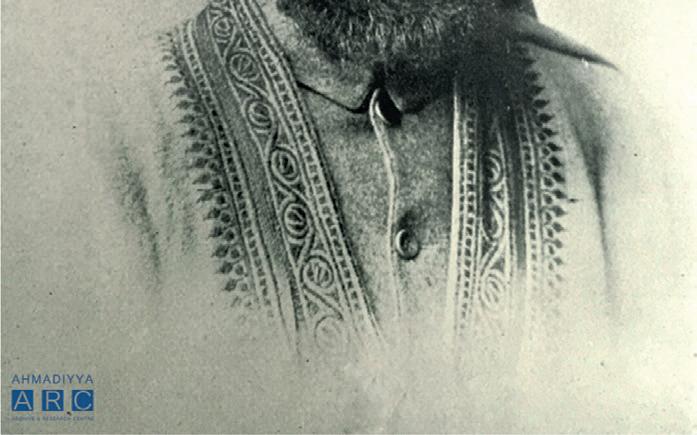
facing challenges, Muhammad Sadiq remains hopeful for peace and goodwill among humanity. He has participated in conferences worldwide, including in Paris, London, and Chicago, to promote the faith of Islam. Followers of Prophet Ahmadas observe five daily prayers. Islam Ahmadiyyat is represented by mosques in London and Chicago, with plans to establish another in Paris, reflecting the growing influence of Islam in diverse regions. Muhammad Sadiq envisions France transitioning into an Islamic nation due to its authority over many Moslem peoples here. As he prepares to return to his homeland at Qadian, nestled at the foot of the Himalayas, Muhammad Sadiq carries with him the hopes for a future shaped by peace and spiritual enlightenment.
– Le Petit Marseillais, Wednesday, 7 November 1923.
Tabligh tour of Nigeria: Kano, Zaria, Ibadan, and Abeokuta
Al Fazl, 13 May 1924
Imam Qasim R Ajose Missionary In-Charge, Lagos (1924)
Lectures
On 7 January 1924, I embarked on a journey from Lagos to conduct an inspection of the Anjuman Ahmadiyya located in Northern Nigeria, accompanied by Zaka Ayeni. We travelled directly to Kano, Nigeria.
Situation in Kano
The state of Kano Jamaat was not good and
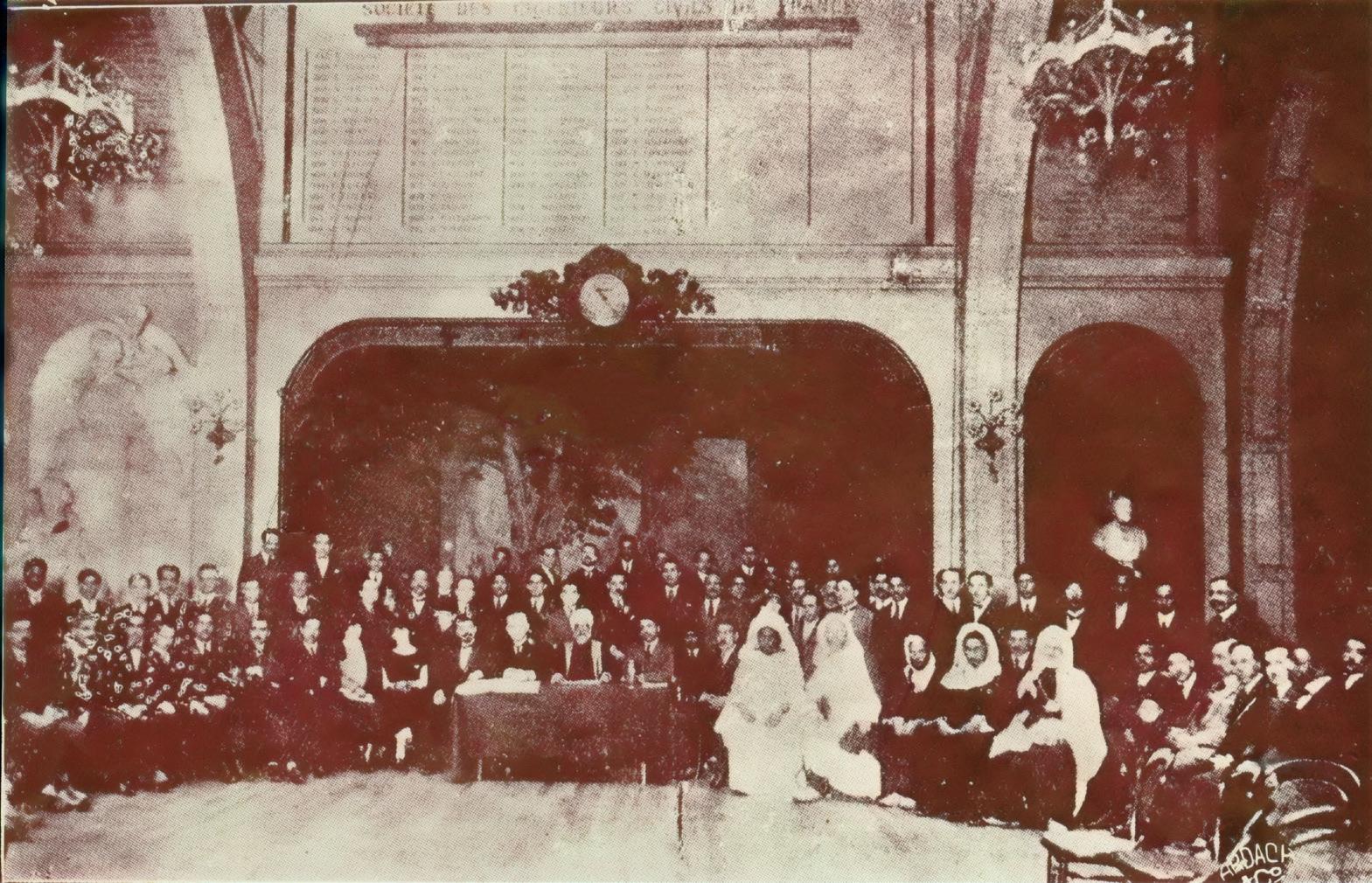




there was a need to rectify the situation. Thus, we made every effort, gathering the people and had tarbiyat discussions with them for five long hours, i.e., from 5 pm to 10 pm. Those who had separated from the Jamaat were persuaded to return, and 18 new converts signed the bai‘at form and joined the Jamaat. The administrative structure of the Jamaat was restored.
Land in Kano
Regarding the property in Kano, actions were taken about the 2 pieces of land granted to us by the government. I took along with me a letter of Maulana Nayyar Sahib addressed to the General Secretary, and we went to the Magistrate Office at Kano Cantonment. In the documents of land, which were in the name of Maulvi [Abdur Rahim Nayyar] Sahib, the address was written as “Islamic Review, Woking,” so I requested the magistrate to change the address and write:
“Maulvi AR Nayyar, Ahmadi Missioner, 63 Melrose Road, Southfields, London, SW 18.”
The Magistrate of Lagos and Kaduna provided me with the form to change the address. Lagos is the capital of the entire Nigeria, and Kaduna is the capital of Northern Nigeria. After correction, a copy of the deed was left with the imam of Kano Jamaat.
Imam Ahmadiyya Kano
Imam of Kano Jamaat, Mr Dean is a very noble person and holds a deep devotion towards Ahmadiyyat. He has been appointed in place of the former president
[of the Jamaat].
Madrasa Ahmadiyya in Kano
There is an instruction to construct a building [of school] on our land in Kano at a cost of £200 before October, but the Jamaat members are destitute and do not possess the required funds. However, we have still requested for a donation and people have promised to give £18.
Opposition
There is an arch enemy of the Jamaat here and he is engaged in hostile activities. I encountered him and he asserted that his imam was in Woking. I replied that Kamaluddin and his associates left [us].
Friday prayers in Kano
In Kano, I have initiated the commencement of Friday prayers from 11 January 1924. I instructed the imam of Kano to continue the Friday prayers regularly even after my departure.
Jamaat Zaria
After staying in Kano for four days and restoring the entire structure, we reached Zaria on 12 January [1924]. Brother Sulaiman Shawki Bari, who is the president of their jamaat, is striving for the propagation of Islam Ahmadiyyat. We stayed in Zaria for six days.
11 AL HAKAM | Friday 10 May 2024
Ago...
100 Years
Continued on next page >>
<< Continued from previous page
During this period, we did not spare a single moment. The whole time was spent explaining the problems, answering questions and performing religious obligations. We also delivered sermons and announced 3 nikahs. A group photo of the jamaat was also taken before our departure.
Ibadan
We departed from Zaria on Thursday and arrived in Ibadan on Saturday, 19 January [1924]. By the grace of Allah the Almighty, the jamaat here is actively engaged in work with great discipline and organisation. We gave sermons and announced two nikahs We were able to deliver only two lectures here. However, lectures in Kano and Zaria were conducted on a daily basis.
Abeokuta
After departing from Ibadan, we reached Abeokuta at 2 am on 21 January [1924]. Due to travel fatigue, we could not make public speeches, but the issues observed within the jamaat’s administration structure were rectified and our discussions continued throughout the night. On 22 January, we left Abeokuta for Lagos after giving a sermon.
Pilgrims to Mecca
After presenting the above brief report of the tour, I wish to inform [the readers] that we arrived safely in Lagos. Here, Brother Ismail Sheta is going to Egypt for Arabic education, and Brother Abubakar Oshodi is travelling with him on the ship “SS ABA” with the intention of performing Hajj. May Allah be their protector and helper [along the way]. The Jamaat members are requested to pray for our success.
Rules and regulations
The rules and regulations of Lagos Jamaat, i.e., the constitution, have not yet received its final signature. However, its reading in Majlis-e-Nazim has been completed three times. Now, the only thing remaining is that Majlis-e-Akbar receives it and everything is explained to them.
Prayers for the chief imam’s health
The chief imam of Ahmadiyya Jamaat Lagos, Imam Muhammad Dabri is unwell. He could not attend the Friday prayer. In my absence, due to his severe illness, alfa Junaid conducted the Friday prayers and delivered sermons. The chief imam is now in Dr Jones’s hospital and is recovering. Please pray for his health. My [Qasim R Ajose’s] wife is also sick; please pray for her as well.
Disagreement among nonAhmadis
Jamaat al-Muslimeen group has filed a case against Imam Ibrahim’s Jamaat in the court. The Victoria Mosque has been locked and the keys of the mosque have
been handed over to the court, and until the decision is made, Jami‘ Masjid [central mosque] will remain closed.
Women
of Lagos Jamaat
In the October 1923 issue of The Review of Religions, a list of donations presented by the women of Lagos Jamaat for the Berlin Mosque was published. The women here were very pleased to see it.
– Qasim R Ajose, Nigeria
(Transcribed and edited by Al Hakam from the original English published in The Moslem Sunrise, April 1924, and translated from the original Urdu, published in the 13 May 1924 issue of Al Fazl)

“O ye who believe! be steadfast.”
(Surah Aal-e-Imran, Ch.3: V.201)
National Football Tournament 2024 held by Jamaat-e-Ahmadiyya UK
Mujeeb Ahmed Mirza
Secretary Majlis-e-Sehat, UK
From 19-21 April 2024, the Majlis-e-Sehat UK, in collaboration with regional teams and managers, orchestrated the National Football Tournament at Elmbridge Sports Hub in Walton on Thames, London, UK. This vibrant event saw participation from 16 teams, including ‘A’ and ‘B’ teams from regions such as Baitul Futuh and Islamabad, culminating in 31 spirited matches.
Preparations began in January under the direction of Nisar Orchard Sahib, President of Football for Majlis-e-Sehat UK. These efforts ensured a seamless and enjoyable experience for all involved. Thirteen of the 14 UK regions were represented, creating a diverse and competitive atmosphere. The teams engaged in numerous training sessions and friendly matches leading up to the event, setting the stage for a high-level competition.
The tournament began with participants watching the live Friday Sermon by Hazrat Khalifatul Masih Vaa. Moreover, the matches, spread over three days, were punctuated by a tarbiyat session aimed at reinforcing the importance of spiritual over worldly pursuits. This session, led by Nisar Orchard Sahib with assistance from two missionaries, Raza Ahmed Sahib and Safeer Zartasht Sahib, was a highlight, engaging players in meaningful discussions about faith and discipline.
All participants observed congregational prayers at the venue, with a special hall reserved for this purpose. Teams travelling from distant regions were accommodated at the Baitul Futuh Mosque Complex.
The semi-final and final matches attracted thousands of viewers online via MTA International’s live broadcast, showcasing the high skill level and competitive spirit of the participants. The Baitul Futuh team emerged as the tournament winners, with Northwest securing the runner-up position.
The tournament’s success was also digitally supported through an app that kept everyone updated on fixtures and schedules, accessible at www.tournify.uk/live/nft2024
Feedback from participants was overwhelmingly positive, emphasising the tournament’s excellent organisation and the competitive spirit it fostered. Many expressed eagerness for the event to become an annual tradition, underscoring its impact and the lasting memories it created.
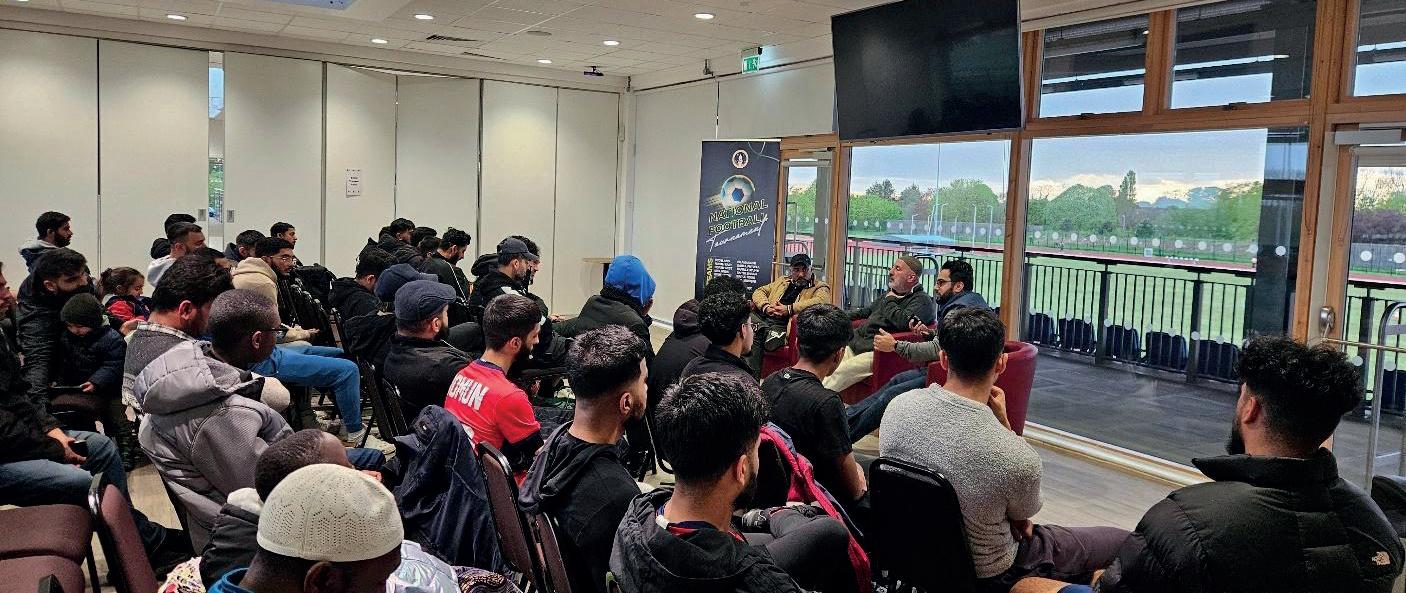

Friday 10 May 2024 | AL HAKAM 12
Image courtesy of AMJ UK
مۡیَجۡرٌلِّاٰ نَاۤطَّیَشّٰلِّاٰ نۡمَ ہُلّٰلاۤبَ ذَوَعِأَ مۡیَحِرٌلِّاٰ نۡـٰمَحِرٌلِّاٰ ہُلّٰلاٰ مۡسَّبَ اوْرُبِصْا اونُمَآ نَيْذِلَّا اهَيْأَ ايْ
Friday Sermon
Mubarak Mosque, Islamabad, Tilford, UK
12
April 2024
Muhammadsa: The Great Exemplar
After reciting the tashahhud, ta‘awwuz, and Surah al-Fatihah, Hazrat Khalifatul Masih Vaa stated:
Prior to Ramadan, I was mentioning the expeditions of the Holy Prophetsa. In this regard, I was discussing incidents related to the Battle of Uhud, which also included aspects of the life of the Holy Prophetsa Today, I shall continue to speak about this. It is recorded in a narration that the mother of Hazrat Sa’d bin Mu’adhra came to the Holy Prophetsa when the Holy Prophetsa was riding on a horse and Hazrat Sa’d bin Mu’adhra was holding its reins. Seeing her, Hazrat Sa’dra said to the Holy Prophetsa, “O Messengersa of Allah! This is my mother.” The Holy Prophetsa replied: “Welcome her!” He stopped his horse for her until she came near and started looking at the Holy Prophetsa. The Holy Prophetsa expressed his condolences on the martyrdom of her son, Hazrat Amr bin Mu’adhra. Upon this, she said, “Having seen the Holy Prophetsa safe and well, all my grief and sorrow have vanished.” The Holy Prophetsa said to Umm Sa’d, “O Umm Sa’d! Glad tidings to you and convey glad tidings to the families of every martyr in that all of those that have been killed are companions of one another in paradise and that all of them have interceded for their families before Allah the Almighty.” That is, all of the martyrs have also interceded for their families before Allah the Almighty. Hazrat Umm Sa’dra replied, “O Messengersa of Allah! We are all content and happy with the will [of Allah] and who can weep for [the martyrs] following this glad tiding?” How magnificent is the standard of their faith and being content with the will of Allah the Almighty? Following this, she requested the Holy Prophetsa saying, “O Messengersa of Allah! Pray for the bereaved families of every martyr.” Subsequently, the Holy Prophetsa prayed for the bereaved families of every martyr of Uhud in the following words:
“O Allah! Remove the sorrow and pain from their hearts, remove their difficulties and grant excellence to the ones left behind by the martyrs.” (Sirat al-Halabiyyah, Vol. 2, Dar al-Kutub al-Ilmiyyah, Beirut, p. 345)
Speaking on the devotion of the people of Medina, Hazrat Musleh-e-Maudra states:
“When the Holy Prophetsa returned from the battlefield of Uhud, the women and children of Medina had left the town in order to welcome [him]. An old and brave companion from among the Ansar [Muslims native to Medina], Sa’d bin Mu’adhra, was holding the reins of the Holy Prophet’ssa camel and he was advancing with pride. Close to the city, he met his elderly mother, whose eyesight had deteriorated. During the Battle of Uhud, one of her sons was killed as well. A cataract was forming in the eyes of this elderly lady and her eyesight had deteriorated. Standing in front of the women, she started looking here and there and inquired where the Holy Prophetsa was. Sa’d bin Mu’adhra thought that if his mother were to receive the news of her son being martyred, she would be in shock. This is why he wanted the Holy Prophetsa to give her courage and grant her solace. Therefore, right when he saw his mother, he said, ‘O Messengersa of Allah, my mother [is here], O Messenger of Allah, my mother [is here].’ (Meaning he said twice that his mother was coming.) Upon stopping there, the Holy Prophetsa said, ‘O woman, it is a matter of great sorrow that one of your sons has been martyred in this battle.’ The vision of the old woman was weak, so she couldn’t see the face of the Holy Prophetsa. She started looking left and right, and eventually, her eyes stopped at the countenance of the Holy Prophetsa. She came close to the Holy Prophetsa and began saying, ‘O Messengersa of Allah, when I have seen you safe, then consider that I have roasted this affliction and swallowed it.’
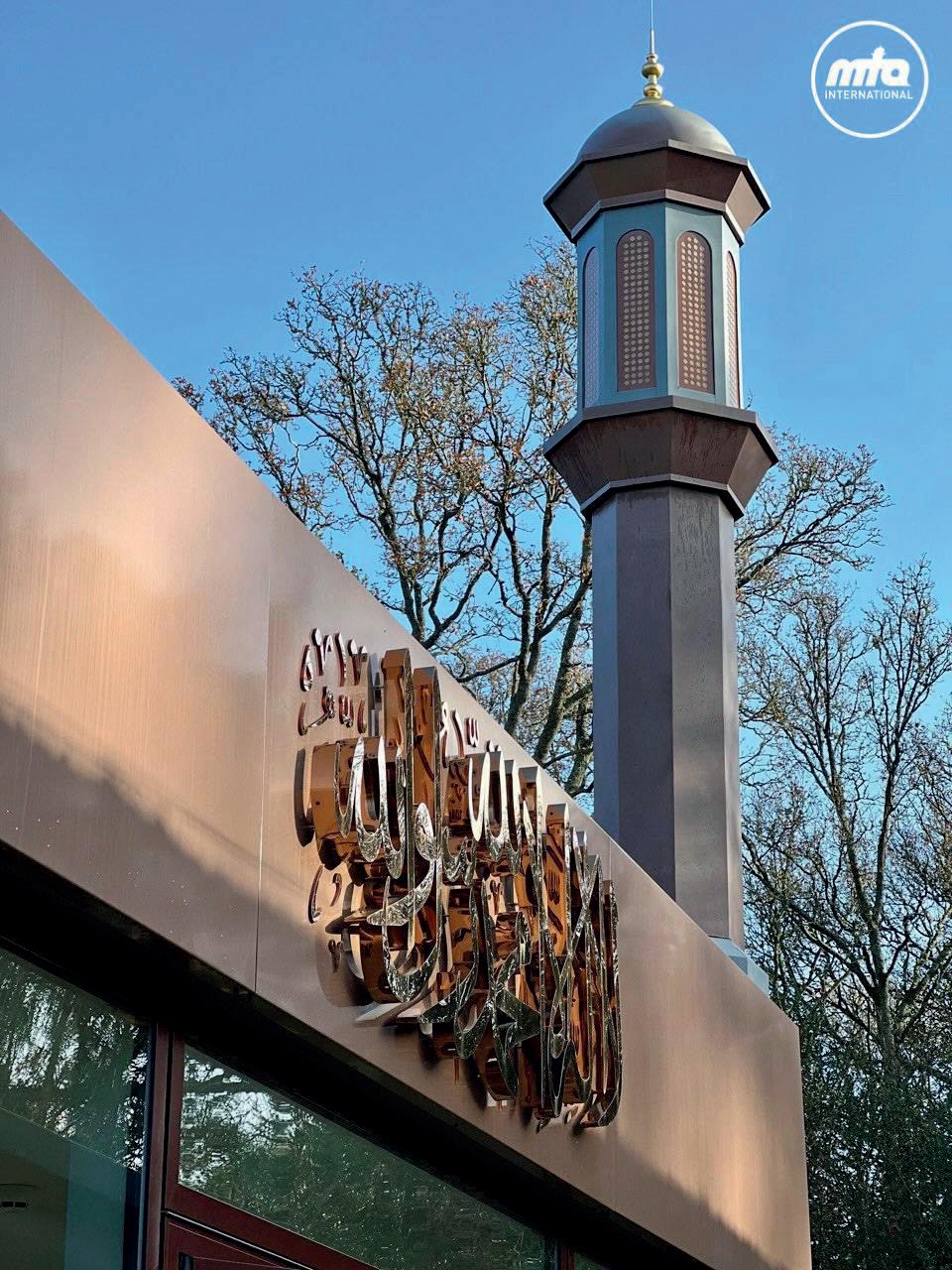
“Now observe how this woman, whose support [i.e. her son] was broken in her old age, bravely said, ‘Why should my sorrow regarding my son eat away at me? If the Holy Prophetsa is alive, then I will roast this sorrow and swallow it. My son’s death will not be the cause of my demise; rather, the fact that the Holy Prophetsa is alive, and my son gave his life while protecting him will only increase my strength.’” (Quroon-e-Ula ki Musalman Khawatin, Anwar-ul-Ulum, Vol. 25, p. 441)
While stating another incident in this manner, Hazrat Musleh-e-Maudra once asked Ahmadi women:
13 AL HAKAM | Friday 10 May 2024
فَلُخَلِّاٰ نۡسَّحِأَوَّ ،مۡہُتَبۡیَصّٰمَ رٰبِجۡاٰوَّ مۡہُبَوَلُقُ نَزْحُ بُّہٰۤذَأَ مۡہُلُلِّاٰ اٰوَفۡلُخَ نۡمَ ىلُعِ
“Does this same passion for your faith surge within you?” Then, after stating the aforementioned incident, he addressed the women of the Jamaat while bringing their attention to the responsibility of tabligh [propagation of Islam], and said:
“These were the women who, in the cause of the propagation of Islam, would walk in stride with men, and these are the women about whom the Islamic world takes great pride. It is also your pledge (meaning the women who accepted the Promised Messiahas) that you believed in the Promised Messiahas, and the Promised Messiahas is the reflection of the Holy Prophetsa. In other words, you are the reflection of the female Companions, but truly tell me: Does the same passion for your faith surge within you that surged within the female Companions? Do you possess the same light that was found within the female Companions? Is your progeny righteous, just as the progenies of the female Companions were? If you reflect on this, you will find yourselves much farther behind than the female Companions.”
He further states, “The sacrifices they made while risking their lives were so loved by Allah the Almighty that He very quickly granted them success, and that work which could not be completed in centuries by other nations, was completed by both the male and female Companions within some years.” (Fariza-e-Tabligh Aur Ahmadi Khawatin, Anwar-ul-Ulum, Vol. 18, pp. 400-401)
Thus, if we wish to see progress, we must create the same faith and passion within us, and instil the same sincerity and sacrifice. Though some incidents like the one I just narrated have been mentioned before as well, they have been stated in light of different narrations; however, when one listens to these incidents over and over, and in varying angles, it creates a wondrous spiritual state and a sense of zeal. When Hazrat Musleh-e-Maudra presents these incidents, we experience them in a more holistic, rather than plainly stating the incident. In the same manner, while mentioning the incidents of the early female Muslims, on one occasion, Hazrat Musleh-e-Maudra stated:
“The battlefield of Uhud was 8 or 9 miles from Medina. When news of the martyrdom of the Holy Prophetsa reached Medina, the women exited the city whilst profusely crying and sobbing and ran towards the battlefield. Most women received the news of the Holy Prophetsa being alive while on the way and so they stopped there, but one woman ran to Uhud in a state of frenzy. This woman’s husband, brother, and father were all killed in Uhud, and according to some narrations, one of her sons was killed as well. When she arrived at the Muslim army, she asked one of the Companions as to the condition of the Holy Prophetsa. Because the Companion who was giving the news was at peace knowing the Holy Prophetsa [was alive], he said, ‘I am sorrowful, O woman, that your father has been killed in this battle.’ Upon hearing this, the woman said, ‘You are quite odd. I am asking about the Holy Prophetsa, and you give me the news that my father has died.’ Upon hearing this, the Companion said, ‘I am sorrowful, O woman, that your husband has also been killed in this battle.’ Upon hearing this, the woman responded, ‘I did
not ask you about my husband. I have asked about the condition of the Holy Prophetsa.’ Upon hearing this, the Companion once more said, ‘I am sorrowful, O woman, that your brother has also been killed in this battle.’ This woman passionately said, ‘I did not ask you about my brother; I asked you regarding the Holy Prophetsa. Tell me about the wellbeing of the Holy Prophetsa.’ When the people saw that she was not worried about the death of her father, husband and brother, and she only wished to ask about the condition of the Holy Prophetsa, they understood her true emotions, and they said, ‘O woman, the Holy Prophetsa is alive and well.’ Upon this, she said, ‘Tell me where he is,’ and then quickly ran towards the direction where the Holy Prophetsa was standing. When she arrived there, she fell to her knees, clutched the clothes of the Holy Prophetsa and said, ‘O Messengersa of Allah, may my mother and father be sacrificed for you. If you are alright, then I do not care who has passed away. I only need for you to be alive. If you are alive, then I am not worried about the demise of anyone else.’”
Hazrat Musleh-e-Maudra further states, “Look at how much this woman loved the Holy Prophetsa. One after the other, people informed her of the death of her father, brother and husband, but she kept giving the same response that ‘tell me about the condition of the Holy Prophetsa.’ Thus, this was another woman who demonstrated a profound love for the Holy Prophetsa.”
(Quroon-e-Ula ki Musalman Khawatin, Anwar-ul-Ulum, Vol. 25, pp. 439-440)
Whilst describing the circumstances that followed the Battle of Uhud and aspects of the Holy Prophet’ssa life, Hazrat Musleh-e-Maudra writes about the condition of early Muslim women, and the love and compassion his male and female Companions had for him. Thus, in The Introduction to the Study of the Holy Quran, he writes:
“When the Islamic army returned to Medina, the false rumour of the Holy Prophet’ssa demise and news of the blows sustained by the Muslims had already reached Medina. The women and children of Medina raced with great fervour and concern towards Uhud. Most of them learned the truth on the way there and stopped, but one woman who belonged to the Banu Dinar tribe ran fervently all the way to Uhud itself to find out if the news was true. When this woman was running frantically towards Uhud (her husband, brother and father were all killed in the battle, and according to some narrations, even her son saw the same fate), the first narration reveals that when she was informed of her father’s demise, she responded only by asking about how Allah’s Messengersa was doing.
“Because the person informing her was already at ease, knowing that Allah’s Messengersa was alright, He kept apprising her of the family members that she had lost.
“But she insisted on repeatedly asking:
have interpreted it to mean, ‘What happened to the Holy Prophetsa at Uhud?’”
In other words, they have taken the statement in a different direction. Hazrat Musleh-e-Maudra explains, “The truth is that according to the linguistic expression of women, it’s absolutely correct. A woman’s emotions run high, and at times, she addresses the dead as though they are living. Like when the sons or husbands of certain women die, they address them as though they are still alive, saying things like, “Why are you leaving me in this state?” or “Son, why have you abandoned me in my old age?” This is an extremely delicate phenomenon that the human condition exhibits in times of deep distress.
And thus, it was the case of this woman upon hearing the false rumour that the Holy Prophetsa has died. She wasn’t ready to accept his passing, nor could she deny that he could have passed away, so in a state of the deepest grief, she just kept repeating, ‘What has the Holy Prophetsa done?’
What she meant was how it is conceivable that such a faithful person bring himself to cause us such pain [by dying]. When people observed that she cared not for her husband, father, or brother’s passing and realised the real intent behind her questions, they reassured her, “O mother of so-and-so, the Prophetsa is as you wish to see him – he is fine by Allah’s grace.”
She asked people, “Show me where he is.” They told her to proceed a little further and that she would see him standing just up ahead. The woman ran up to him and held him by his mantle, saying, “O Messengersa of Allah, may my parents be sacrificed for you. When you are alive and well, I care not for anyone else’s death.”
Hazrat Musleh-e-Maudra states, “Observe, the men demonstrated a tremendous example of faith in battle, and the women showed their sincerity in the way I have just illustrated before you. The Christian world takes great pride in the heroism of Mary Magdalene and her female companions circumventing the enemy to enter the sepulchre of Jesus Christ.
“I say to them: Come and see the selfless devotion of my Beloved’ssa devotees! [Look at] the precarious conditions in which they supported him and through it, all kept aloft the flag of God’s unity […]
“After burying the martyrs, when Allah’s Messengersa returned to Medina, he was met on the town’s outskirts by women and children welcoming him back home. Sa’d bin Mu’adhra, a Chief in Medina, was holding the reins of the Prophet’ssa camel (I’ve mentioned this incident before as well) and kept running up ahead with pride, perhaps announcing to the people that look, we have brought Allah’s Messengersa back home safely.
all of one’s sorrows.
“What a deeply profound calibre of love it conveys. Normally, grief consumes a person. But this woman, who, in her advanced age, lost her means of support and livelihood in her son, declared with such vivacious courage that, let alone grief consuming her, when the Messengersa of Allah is alive, I will instead consume my grief. My son’s untimely death will not be a means of my demise. Rather, the knowledge that he gave up his life for the Prophetsa of Allah will rejuvenate me.”
This is true passion.
Hazrat Musleh-e-Maudra, praying for the Helpers of Medina, and expressing his sentiments about them declared, “O Helpers of Medina, may my life be sacrificed for you all; what a truly great reward you have earned.” (Dibacha Tafsir-ul-Quran, Anwar-ul-Ulum, Vol. 20, pp. 255-257)
What was the example of the Holy Prophetsa upon the conduct of the hypocrites and Jews of Medina and Hazrat Umar’sra display of passion in response to them? It is recorded that when the Holy Prophetsa reached Medina after the Battle of Uhud, the hypocrites and Jews of Medina began to celebrate and speak ill of the Muslims. They would say, “Muhammad[sa] desires to rule (God forbid), and to this day, no prophet has suffered as much loss as he has. He himself was injured, and so were his companions.” They would also say, “If those among you who lost their lives had remained with us, they would never have been killed.”
Hazrat Umarra sought permission from the Holy Prophetsa to slay the hypocrites who were saying these things. The Holy Prophetsa said, “Do they not bear witness that there is no god besides Allah – do they not recite
– and that I am the Messenger of Allah
. In other words, they recite the Islamic creed. He then asked, “Do they not recite the Islamic creed?” Hazrat Umarra replied, “Yes, they do. They may proclaim it, but at the same time, they speak hypocritically.” Hazrat Umarra added, “They only recite the creed or accept Muhammad as the Messenger of Allah so out of fear of the sword. Their matter is clear, and now that they have displayed what is in their hearts and Allah has manifested the malice they harbour, we must take revenge against them, and punish them.” The Holy Prophetsa replied, “I have been forbidden to kill those who proclaim the creed. (Al-Sirah al-Halabiyyah, Vol. 2, Dar al-Kutub al-Ilmiyyah, Beirut 2002, p. 348)
The Holy Prophetsa was forbidden from slaying those who proclaim that, “There is no God besides Allah and Muhammad is His Messenger.” [He said] “I have been prohibited from killing one who recites this Islamic creed.”
“‘What has the Holy Prophetsa done?’
“Apparently, this phrase appears to be incorrect at first glance (Hazrat Muslehe-Maudra states that at first glance it seems incorrect to say ‘What has the Holy Prophetsa done?’). This is why historians
“(This was a form of expression.) While entering the town, Hazrat Sa’dra was met by his aged mother whose eyesight had grown weak. Her other son, ‘Amr bin Mu’adhra, had also been martyred at Uhud (as I’ve mentioned in detail before as well). When the Holy Prophetsa saw her, he said, ‘I feel great sympathy for your loss.’ The pious woman responded, ‘O Messengersa of Allah, now that I’ve seen you alive and well, consider that I have cooked and eaten away all my other sorrows.’ What a strange idiomatic expression - to cook and eat away
This is sufficient to silence those selfproclaimed clerics who say that Ahmadis are disbelievers and their killing is permissible, despite the fact that Ahmadis recite the Islamic creed from their hearts and harbour, not even a hint of hypocrisy within them. In fact, these so-called scholars deem Ahmadis to be disbelievers and regard their killing to be permissible as a result of which there have been some martyrdoms. These are the very clerics, or self-proclaimed clerics, who have put the name of Islam in disrepute.
Friday 10 May 2024 | AL HAKAM 14
مۡلُسۡوَّ ہٗیَلُعِ ہُلّٰلاٰ یۡلِصۡ ہُلّٰلاٰ لِوَسۡرَ لُّعَفَ اۤمَ
ہُلّٰلاٰ اَ اٰ ہٗلِّاٰ اَ
– ہُلّٰلاٰ لِوَسۡرَ دَمَحَمَ
There are several narrations regarding the funerals of the martyrs of Uhud. I have presented them previously, but now I would like to mention a narration of Sahih al-Bukhari, from which one can understand the rank and station of the Companions who partook in the Battle of Uhud and the prayer of the Holy Prophetsa for them.
Hazrat Uqbah bin Amirra relates that the Holy Prophetsa offered the funeral prayers of the martyrs of Uhud eight years later, as if bidding farewell to the living and the dead. Then he ascended the pulpit and said, “I am your predecessor before you, and I am a witness for you, and your promised place [on the Day of Resurrection] to meet me will be Al-Haud [a place of drink] and I can see it from where I stand. I am not afraid that you will worship others besides Allah, but I am afraid that the worldly life will tempt you and cause you to compete with each other for it.” (Sahih al-Bukhari, Kitab al-Maghzai, Bab Ghazwah Uhud, Hadith 4042)
Incidents that unfolded later prove that this fear of the Holy Prophetsa was warranted.
Hazrat Ibn Abbasra relates that the Holy Prophetsa said, “When your brothers were martyred at Uhud, Allah placed their souls in green birds which go down to the rivers of paradise, eat its fruits and nestle in lamps of gold in the shade of the Throne. Then, when they tasted their favourite food and drink and rested as they pleased, they asked who would tell their brethren about them that they were alive in paradise and given provisions, lest they become reluctant to perform Jihad or take up arms in war. Allah Almighty has said that He would inform them about them. Then Allah revealed:
“(The Holy Quran, 3:170)
“‘Think not of those, who have been slain in the cause of Allah, as dead.’” (Sunan Abi Da’ud, Kitabl al-Jihad, Bab fi Fadl alSahahdah, Hadith 2520)
Some authors of commentaries on the Holy Quran or narrators of Hadith often assert that this does not necessarily have to be the reason this verse was revealed. Even before this [revelation], every martyr – and the martyrs of Badr – were granted a lofty rank. In fact, this verse is also found in Surah al-Baqarah.
Then, there is another narration from Hazrat Jabir bin Abdullahra, who says, “The Holy Prophetsa used to say, ‘By God, when I think of the martyrs of Uhud, I wish that I had stayed with my Companions in that mountain valley.’ In other words, he would say, ‘Alas! If only I was martyred along with them.’” (Al Mustadrak ‘ala al-Sahihain, Vol. 5, Kitab al-Maghazi wa al-Saraya, Hadith 4318, Maktabah Nazar Mustafah, 2000, p. 1627)
Abdullah bin Abu Farwah narrates on account of his father, “When the Holy Prophetsa visited the graves of the martyrs of Uhud, he said:
the Day of Judgement.’” (Al Mustadrak ‘ala al-Sahihain, Vol. 5, Kitab al-Maghazi wa al-Saraya, Hadith 4320, Maktabah Nazar Mustafah, 2000, p. 1627-1628)
Regarding the martyrs of Uhud, the Holy Prophetsa also said:
“These are the people for whom I testify.”
Upon this, Hazrat Abu Bakr Siddiqra submitted, “O Prophetsa of Allah, are we not their brothers? We accepted Islam just as they did, and we performed jihad just as they did.” The Holy Prophetsa replied, “Indeed. However, I do not know what you will do after I am gone.” Hazrat Abu Bakrsa started weeping and said, “Will we be able to live after you?” (Al-Muwattah li Imam Malik, Kitab al-Jihad, Bab al-Shuhada fi Sabeelillah, Hadith 1004, Dar al-Fikr, Beirut, p. 282)
Hazrat Abu Bakrra began to weep in sorrow from the thought that he may live longer than the Holy Prophetsa Abbad bin Abu Salih narrates, “The Holy Prophetsa would go to visit the graves of the martyrs of Uhud at the beginning of each year. There, he would say:
‘Peace be upon you for the patience you displayed. How delightful is your final abode!’”
The narrator states that afterwards, Hazrat Abu Bakrra, and then Hazrat Umarra, and then Hazrat Uthmanra also went to visit their graves. (Tarikh al-Madinah alMunawwarah, Vol. 1, Hadith 381, Dar alKutub al-Ilmiyyah, Beirut, pp. 85-86)
Hazrat Mirza Bashir Ahmadra writes:
“Close to the era of his demise, the Holy Prophetsa especially offered a funeral prayer for the martyrs of Uhud, and prayed for them with great anguish. The Holy Prophetsa would remember the martyrs of Uhud with special love and respect.
On one occasion, when the Holy Prophetsa passed by the graves of the martyrs of Uhud, he said, ‘These are such people whose faith I am a witness to.’ Hazrat Abu Bakrra submitted, ‘O Messenger of Allah! Are we not their brothers? Have we not also accepted Islam as they did? Have we not also partaken in Jihad for the sake of Allah as they did?’ The Holy Prophetsa said, ‘Indeed! But how do I know of what you shall do after my demise?’ Upon this Hazrat Abu Bakrra began to weep and continued to weep profusely. Then he said, ‘O Messenger of Allah! Shall we be able to live after your demise?’”
Such a thought was akin to death. Then, he further writes:
began to weep restlessly and left without eating, although he was fasting.” (Life and Character of the Seal of Prophetssa, Vol. 2, pp. 347-348)
Then there are incidents of the Holy Prophetsa consoling the families of the martyrs of Uhud and mention of how he expressed love to the children of martyrs. Hazrat Bishr’sra father Hazrat Aqrabahra has been mentioned among the martyrs of Uhud. Some have also recorded Hazrat Bishr’s name and Bashir. When Aqrabah was martyred, his son Bishr was sitting beside him, crying. The Holy Prophetsa passed by and said:
“Be quiet. Does it not please you that I become your father and A’ishah becomes your mother?”
Bishr replied, “Why not? Of course, it pleases me.” His previous name was Bahir, and the Holy Prophetsa named him Bashir. He had a lisp, however the Holy Prophetsa [prayed and] blew on his mouth as a result of which his lisp was cured. The Holy Prophetsa also passed his blessed hand over his head. When he became advanced in age, all the hair on his head became white, but the hair at the place where the Holy Prophetsa had passed his hand over remained black. He lived a long life and passed away in Palestine in 85 AH. (Sirat Encyclopaedia, Vol. 6, Darus Salam Research Center, p. 357;Al-Asabah, Vol. 4, Dar al-Kutub al-Ilmiyyah, Beirut, p. 437; Usd al-Ghabah, Vol. 1, Dar al-Kutub alIlmiyyah, Beirut, p. 388)
There is an incident of the Holy Prophetsa consoling Hazrat Jabir bin Abdullahra Hazrat Jabir bin Abdullahra relates, “Once, the Holy Prophetsa saw me and stated, ‘O Jabir! What is the matter, for you seem very sad?’ I submitted, ‘O Messengersa of Allah! My father was martyred during the Battle of Uhud and he has left behind his progeny and a debt.’
“The Holy Prophetsa replied, ‘Shall I not give you glad tidings regarding the manner in which your father met Allah?’ I submitted, ‘Yes, O Messengersa of Allah.’
The Holy Prophetsa stated, ‘Allah the Almighty conversed with everyone behind a veil; however, He brought your father back to life and spoke to him directly and said, “O My servant ask of Me whatever you will, and I shall grant it to you.” He submitted, ‘O my Lord, grant me life [on earth] once again so that I may be martyred in Your way once again.’”
“Think not of those, who have been slain in the cause of Allah, as dead. Nay, they are living, in the presence of their Lord, and are granted gifts from Him.” (Sunan al-Timidhi, Abwab al-Tafsir al-Quran, Bab Wa min Surah Aal-Imran, Hadith 3010;Baihiqi, Dala’il al-Nabuwwah, Vol. 3, Dar al-Rayyan li al-Turaf al-Qahirah, 1988, p. 298;Al-Isti’ab, Vol. 3, Dar al-Jayl, Beirut, pp. 955-956)
In any case, as I mentioned before, it is not certain whether this was the exact reason for the revelation of this verse, but what is true is that the martyrs are living and they attain the loftiest stations in heaven after dying; in fact, immediately after passing away they attain the loftiest ranks in heavens. This incident of Allah the Almighty speaking with Hazrat Abdullah bin Amrra was also detailed by Hazrat Khalifatul Masih IVrh in a speech with reference to the life of the Holy Prophetsa. It demonstrates the Companions’ connection and love for the Holy Prophetsa and the manner in which Allah the Almighty lovingly looked down upon them. Whilst mentioning this, he states:
“This incident is filled with countless aspects of beauty. From whichever perspective one looks at it, it manifests its grace and splendour. Among many other things, we learn how the Holy Prophetsa remained in constant communication with His Lord; on the one hand, he was filled with benevolence towards his people and at the same time, his heart remained attached with His Lord. One aspect of his being was devoted to his Companions and the other was always firmly attached and bonded to his Beloved, the Most High.
“During a time of peace and security, he remained steady at the loftiest spiritual heights at the stage of:
“(The Holy Quran 53:9)
‘O Allah, indeed, I, your servant and messenger, testify that these people are martyrs, and they will reply to those who visit them and send peace upon them until
“The Companions also held the martyrs of Uhud in high esteem, and always kept the memory of Uhud alive in their hearts as a sacred event. As such, on one occasion after the demise of the Holy Prophetsa, Hazrat Abdur Rahman bin Aufra was presented with some food to break his fast, which was perhaps somewhat elaborately prepared. At this, he was reminded of the time of Uhud, when the Muslims did not even possess enough cloth to shroud their martyrs, and they would cut grass to cover their bodies. Abdur Rahman bin Aufra was so greatly disturbed by this memory that he
According to another narration, it states that on this occasion, Hazrat Abdullahra submitted, “O my Lord! I was unable to fulfil the dues of Your worship. Thus, grant me life once again so that I may stand next to Your Prophetsa and fight in Your way and embrace martyrdom once again for Your sake.” Upon this, Allah the Almighty stated, “I have decreed that once someone dies, they shall never return to the earth.”
Hazrat Abdullah bin Amrra requested, “O my Lord, convey this to my loved ones in the world. Subsequently, Allah the Almighty revealed the following verse:
(The Holy Quran, 3:170)
“Then, he did not waver from this station for even a moment, even during times of war. One eye would be overseeing the battlefield, whilst the other would be engaged in witnessing the wondrous signs of his Lord. One ear would be compassionately listening to his Companions whilst the other would be engaged in listening to the delightful sound of divine revelation. His hands were working whilst his heart remained occupied in the remembrance of God. The Holy Prophetsa would be consoling and reassuring his Companions whilst God Almighty Himself would be granting him comfort and solace.
“By revealing the heartfelt desire of Abdullah bin Amrra, Allah the Almighty was informing the Holy Prophetsa, ‘O one who loves Me more than anyone else, I have filled the hearts of My righteous servants with so much love for you that even after passing away from this transient world, they continue to have a heartfelt longing for you (in other words it was there [in the afterlife] that he asked to go back so he could fight alongside the Holy Prophetsa) and to have left you alone in the battlefield pains their heart. They do not even desire the gardens of Paradise when it comes to you because for them, their paradise is to be at your side, and even if they are repeatedly killed by the sword, their only
15 AL HAKAM | Friday 10 May 2024
اۤتٰاٰوَمَاٰ ہُلّٰلاٰ لُّیَبۡسۡ یۡفِ اٰوَلُتَقُ نۡیۡذِلِّاٰ نَبِسَّحَتٰ اَلَوَّ
نۡمَ ہٗنَأَوَّ ،ءَاٰدَہُشَ ءَاَلَؤُہٰۤ نَأَ دَہُشّٰیۡ کَیَبۡنَوَّ كَدَبۡعِ نَإِ مۡہُلُلِّاٰ ہٗیَلُعِ اٰوَّدُرَ ۃًمَاۤیَقُلِّاٰ مِوَیۡ ىلِّإِ مۡہُیَلُعِ مۡلُسۡوَّ مۡہٰۤرَاٰزۡ
مۡہُیَلُعِ دَہُشَأَ ءَاَلَؤُہٰۤ
رَاٰدَلِّاٰ ىبۡقُعِ مۡعَنۡفَ مۡتٰرٰبِصۡ اۤمَبَ مۡکُیَلُعِ مِاَلَسۡ
کَمَاٰ ۃًشّٰئِاۤعِوَّ كَوَبَأَ اۤنَاٰ نَوَکُاٰ نَاٰ ىضٰرٌتٰ اۤمَاٰ، تِکُسۡاٰ
ءَاۤیَحِأَ لُّبَ اۤتٰاٰوَمَأَ ہُلّٰلاٰ لُّیَبۡسۡ یۡ اٰوَلُتَقُ نۡیۡذِلِّاٰ نَبِسَّحَتٰ اَلَوَّ نَوَقُزۡرٌیۡ مۡہُبَرَ دَنۡعِ
ىلِّدَتَفَ اۤنَدُ مۡث
desire is to be with you again and again and again.’” (Khutbat-e-Tahir, Jalsa Speeches before Khilafat, Speech at Jalsa Salana 1979, pp. 349-350)
The rest I will, God willing, continue in the future.
Continue to pray for Palestine and the world in general as the situation is increasingly worsening. There is the risk of an attack on Iran, which will cause the war to further spread. May Allah the Almighty bestow His mercy.
Also, news was received that the majority of the Ahmadis imprisoned in Yemen were freed yesterday. Pray for the remaining few prisoners; may Allah the Almighty bring a change in the hearts of those who are in authority over them. And especially pray for the Sadr Lajna who is also in prison; may Allah the Almighty grant the means for her swift release.
After the prayers, I shall lead two funeral prayers in absentia; I will mention some details about them.
The first funeral is of respected Mustafa Ahmad Khan Sahib, who was the son of Hazrat Nawab Abdullah Khanra and Hazrat Nawab Amatul Hafeez Begumra, who recently passed away.
[“Surely, to Allah we belong and to Him shall we return.”]
The deceased was the youngest grandchild of the Promised Messiahas and was the youngest son of the Promised Messiah’sas youngest daughter, Amatul Hafeez Begum Sahibara. He was the youngest grandson of the Promised Messiahas. By the grace of Allah the Almighty, he was a musi. In 1966 he started his employment as the general manager at Sui Northern Gas Company. Even after his retirement, he once again became the director of the company. When the situation [against Ahmadis in Pakistan] worsened, the company completely side-lined him and would not give him any good level of work. He discussed this matter with Hazrat Khalifatul Masih IIIrh and he advised him that the circumstances would eventually improve and he should not worry and continue working there. Following this, the circumstances improved, Allah the Almighty bestowed His grace upon him and the circumstances turned in his favour.
He looked after the poor a lot and fulfilled his relations with his family members. He was married twice. His first wife passed away and then he later married his wife’s younger sister, who already had children [from a previous marriage]. He looked after her children as his own. This second marriage was upon the advice of his sisters and he fulfilled this marital bond in an excellent manner. As I mentioned earlier, his second wife was the younger sister of his first wife. She was divorced and had two daughters from her previous marriage. For a long time she raised her daughters on her own, but later married again.
She writes, “He treated even the nonMuslims with great kindness. There was a Hindu child in Sindh and he bore all the costs for his education and helped
Editor-in-Chief:
“Continue to pray for Palestine and the world in general as the situation is increasingly worsening. There is the risk of an attack on Iran, which will cause the war to further spread. May Allah the Almighty bestow His mercy.
him attain an education to a level that he later became an assistant commissioner and he would always say, ‘I have attained this rank because of Mustafa Khan Sahib.’ Nonetheless, this was purely due to the blessings of Allah. He took great care of the poor. He also established a trust in the name of his parents on his Nasirabad farm, which he received as part of his father’s inheritance. He built a clinic near the land where free medical clinic camps would be organised and Dr Abdul Mannan Shaheed Sahib would also serve in these medical camps. He never asked any outsider to help run this clinic and would cover all the costs through his means.
He was also very hospitable. (His father, Nawab Abdullah Khan Sahibra was also very hospitable and this quality was instilled in him through his father.) He also had a very loving relationship with his children. He fulfilled all his relations in an excellent manner.” His second wife has written this. He treated and cared for her daughters just like his own. If ever he had to be strict to make them understand something then he would do so in a way that they would learn from it.
Dr Khalid Tasleem Sahib, his nephew, says that he was an extremely helpful person. He held a very high office in the department of Sui Gas. If ever anyone needed any help, he would never refuse them and he would particularly look after the poor. Mirza Hanif Ahmad Sahib once stated that if you send a poor person to him for any task, he would most certainly do it. He also helped to install gas in the homes of many of the poor families of Rabwah. 35 years ago, he was diagnosed with cancer, and he underwent major surgery. It greatly affected his day-to-day life, but despite this, he always remained cheerful. It never impeded him in his hospitality and helping others. He had a vast circle of friends. Even opponents of the Community
Qaasid Muin Ahmad | Executive Editors: Ataul Fatir Tahir, Aqeel Ahmed
had great reverence and respect for him and would meet with him because he would confer a favour upon everyone. He would never take a favour from someone, but instead always tried to do good to others. If someone did confer a favour upon him, he would always remain grateful for that. I have seen these qualities in him myself. He would look after the poor. He was an excellent son who cared for his mother the most. Despite being the youngest from among his siblings, he demonstrated his level of maturity. His mother, Nawab Amatul Hafeez Begum Sahiba had entrusted him with looking after all the land that was inherited and he fulfilled this responsibility most ably. He improved the farm manifold. For this reason, his brothers and sisters trusted him greatly. Aside from this, he would look after the poor workers. Nonetheless, he was an excellent husband, an excellent son, an excellent father and an excellent brother. May Allah the Almighty bestow His forgiveness and mercy upon him.
The second funeral prayer I will lead in absentia is of Dr Mir Dawood Ahmad Sahib, who lived in the USA and passed away recently:
[“Surely, to Allah we belong and to Him shall we return.”]
He was the son of Dr Mir Mushtaq Ahmad Sahib and Bilqis Begum Sahiba. He was married to the respected Amatul Baseer Sahiba, who was the daughter of Mian Abdur Rahim Ahmad Sahib and Sahibzadi Amatul Rashid Begum Sahiba. Sahibzadi Amatul Rashid Begum Sahiba was the daughter of Hazrat Musleh-eMaudra and the granddaughter of the Promised Messiahas and she [Amatul Baseer Sahiba] is the great-granddaughter. Sahibzadi Amatul Rashid Begum Sahiba
was the paternal granddaughter of Hazrat Hakeem Maulvi Noor-ud-Din, Khalifatul Masih Ira
Dr Dawood Sahib graduated from the University of Engineering and Technology, Lahore, after which he went to the USA to do his PhD. He then went on to work for the World Bank for 35 years as a Senior Development Professional and as a highly skilled practitioner. He worked in many countries, particularly across Asia working on international development projects and schemes. He was one of the early members of the USA Jamaat. In the ‘70s, he worked in the team for Langar Khana [the kitchen established by the Promised Messiahas] despite being such a high-ranking official. He served for many years as National Secretary Properties USA. He always worked with passion and religious zeal. He worked tirelessly on the construction of Baitur Rahman Mosque and its expansion. Even though he was a high-ranking official, he served the Jamaat with great humility. He spent time in China, and the missionary who served there at the time stated that when the deceased was studying there, despite the circumstances being unfavourable, he strove to spread the message of Islam in China. He was extremely modest and would meet everyone with great humility and joy. He would always be ever ready to offer financial sacrifices and hospitality was one of his salient qualities. He would show kindness to everyone he knew and to those he did not, without distinction. May Allah the Almighty bestow His forgiveness and mercy upon the deceased.
(Official Urdu transcript published in the Daily Al Fazl International, 3 May 2024, pp. 2-6. Translated by The Review of Religions.)
Friday 10 May 2024 | AL HAKAM 16
| Research:
| Associate Editors:
Translations:
|
Ahmad | Social Media:
Basit | © Al Hakam 2024
Kang
Awwab Saad Hayat, Iftekhar Ahmed
Jalees Ahmad, Ata-ul-Haye Nasir
M Adam Ahmad
Design: Tahmeed
Romaan
نَوَعَجۡرَ ہٗیَلِّاٰ اۤنَاٰوَّ ہُلّٰل اۤنَاٰ
نَوَعَجۡرَ ہٗیَلِّاٰ اۤنَاٰوَّ ہُلّٰل اۤنَاٰ






































